#otherwise how did you learn about like...WWII in high school?
Text
it is not even 7 AM and I've already been smacked in the face with the Hot Take that the existence of queer history as a field is bigoted because "it should all just be History!!!! queer stuff shouldn't be separate!!!!!"
friend
real question
do you think history specializations operate on the segregated drinking fountains model
#history#queer history#the existence of specializations doesn't mean those topics aren't discussed in general history classes?#otherwise how did you learn about like...WWII in high school?
364 notes
·
View notes
Text
2020 fic recs!! [Part 2]
part 2 of my 2020 fic recs!! as before, ive limited this to five fics per month; and fics are ordered by the month they were published. This spans fandoms and ships, and hopefully you find something you like!! credit for the idea goes to @iam93percentstardust
***
July
this is the start: @capnwinghead
Clark and Bruce continue raising the Wayne children and encounter a number of challenges along the way.
great minds (love alike): @starklysteve
Steve’s eyes flicks down to Tony’s knees on the floor.
“Are you – are you proposing to me with my ring for you?” Steve asks incredulously, eyes wide and confused.
---
Or, Steve finds Tony’s ring for him, Tony finds Steve’s ring for him. Panic happens.
Marvels Unsolved: @iam93percentstardust
Marvels Unsolved was never supposed to be this popular. It started off as a novelty web-series about Tony trying to convince Bucky about the existence of the supernatural—he firmly believed that if science could turn Uncle Steve from an actual shrimp to the god of muscles, then magic had to be out there—and then they’d started talking about an unsolved crime from the early 20th century after filming an episode one day, forgetting that the camera was still rolling, and had ended up with enough footage to make a second episode about real crimes. They had stayed pretty unknown throughout that first season but then true crime podcasts had exploded in popularity and Unsolved along with them.
it’s a small world after all: @maguna-stxrk
“Great speech.”
Smiling at the compliment, Tony turns around. “Thank y—”
And nearly drops his champagne flute.
His world comes to a stop.
They had only spent a night together, but Tony would recognize those baby blues anywhere.
It’s Steve.
Steve from Tony’s London business trip. Or, as Rhodey has become accustomed to calling him—The Soulmate That Got Away.
you’re in my blood, you’re in my veins: @nethandrake
Tony always figured that if they ever were to break up, it would be like a blaze. Scorching and hot and all-too blinding. Intense like the two of them have always been.
Instead, they break up on a Tuesday, with the rain pelting the windowpane and the midnight silence stifling.
August
Five Times Danny said he’d marry Steve (plus one): @five-wow
Danny humphs. “Look, all I’m saying is, I think I’d probably have married you by now.”
“I’d marry you, too,” Steve says.
Or: An experiment in how many times you can say something before you have to put your money where your mouth is.
Family (You’ve Always Had It): @/SunnyQueen
A black Camaro and a scowling blond was not what Junior had been expecting.
“Hi, sir. You didn’t have to pick me up.”
The blond looked up from the screen on his phone and groaned, completely ignoring Junior's statement. “You are right, I didn't have to."
Ode To Yoga Pants: @riotfalling
OR the continued terrible mating dance of Bucky and Tony, AKA when betting on your friends stops being fun
Through The Years: @hawkbucks
Tony brings home Natasha one day, proclaiming her to be his new sister.
Natasha takes this all in stride.
The broken road that led me home to you: @just-fandomthings
A documented list of conversations between Steve and Danny via text and phone call following the events of 10x22 "Aloha." (Where, even thousands of miles apart, Steve and Danny can't go without talking to each other.)
September
someday, we’ll pass it on to you: @starklysteve
Steve smiles.
Reaching up, he flattens his hand against his son’s far smaller one, curling gently around it. “You wanna be like him?”
“Da!” Peter agrees again.
One year old, and you already know who’s the best of us, Steve pauses to reflect, all his fears chased away by a fierce pride. “Your Dad’s coming home real soon,” he promises, “you should tell him that.”
---------------
Or, five times Peter did the repulsor pose as a toddler
+ one time he used the repulsors as an adult
Classic Sci Fi: @notdoingsohot
Bucky wakes up to Steve telling him he's lost his memory, but not to panic, it'll only last a few days. Easier said than done when the last thing Bucky remembers is fighting Hydra with the Howlies in WWII.
He tries to make the most of it however, and there's this guy... Tony Stark. It's pretty clear the guy hates Bucky's guts, which is unfortunate because god damn is he a sight.
He tries to figure out what he did to wrong Stark, but everyone just tells him he doesn't want to know.
They were right.
Blooms in Frost: @/Diomedes
Tony coughs up his first petal on the sixth of July. He has been married to the love of his life for two years.
Bury a Hanahaki corpse in earth and it will beget the most beautiful garden.
All that love, it is said, must go somewhere.
Hanahaki AU: Established relationship
------------------------------------------
A Single Thread of Gold: @lovelyirony
Rhodey doesn't believe in love at first sight or any of that cheesy shit. He just wants someone who is nice, dependable, and safe.
Tony Stark is Housing Service's little problem for the school year, and now he's stuck in Rhodey's room because he's exploded the last two dorm rooms he's been in and won't live off-campus.
high roller, place your bet: @machi-kun
“Would you kiss Stark for a hundred bucks?”
“I would pay a hundred bucks to kiss him.”
October
press my luck: @omg-just-peachy
But... Steve is almost ten years his junior, and he could be with just about anyone, looking and acting like he does. And then there’s the not so small fact of Tony’s name and net worth and the fact that, okay, Tony had paid for Steve’s grad school tuition, and now he’s worried Steve feels obligated to stay. Or something.
Or, Tony is a billionaire, Steve is a grad student, and they learn to let themselves be taken care of.
see it with the lights out: @starklysteve
Tony goes on a business trip, and he does not - not at all - get jealous of Dodger hogging his husband's chest, a territory otherwise known as Tony's pillow.
(or, Steve goes on an Instagram spree and Tony misses home)
adulthood is looking both ways before you cross the street and getting hit by an airplane: @starkslovemail
It was a perfect plan, if Peter did say so himself.
The Buy In: @dracusfyre
For the ImagineTonyandBucky prompt: Mafia AU with Tony as the Boss (except he's a really good one, making the streets safe, keeping drugs away from kids etc) and Bucky as the detective sent to go undercover to catch him out but ends up realizing he's actually doing more good than harm and they end up falling in love
trinkets of your affection: @starklysteve
Kissed him once for every year I loved him, Steve had written.
By that count, Steve owes him five more kisses now.
Tony traces the words, hands trembling, and tips back a shot of Howard's ancient whiskey. None of it burns anymore.
One day, he'll have lived more days without Steve than there are words in the diary.
For the first time since he'd woken with shrapnel in his chest, Tony fears the future.
----------
Or, five things Tony keeps to remember Steve by, and one thing Steve gives him to remember.
November
“Hey Tony”: @riotfalling
Steve points out that Bucky never calls Tony by his actual name. Bucky doesn’t believe him, until he does.
Remembering You is Hard to Do: @lovelyirony
“The future’s crazy, honey-bear.”
Jim looks up.
“Why do you call me that?”
“Call you what?”
“Honey-bear. It’s weird.”
“Inside joke we have,” Tony says, chest tightening. “We thought those couples that have the lovey-dovey nicknames were ridiculous.”
overheard your heartbeat (calling me yours): @starklysteve
"Tony - "
"I wish I could promise to come home this time," he feels the armor crawl back down his arm, continuing unnoticed over Steve's red gloves, then up the blue uniform as Tony fights to keep Steve's gaze firmly fixed on him.
The last eyes Tony might get to see, and he wants to be lost in them.
In the end, his entire life boils down a few simple things: "JARVIS, take care of him for me."
----------
Or, Tony overhears a phonecall where Steve proposes, a battle happens, and a paper ring settles some misunderstandings.
i (really, really, really, really, really, really) like you.: @nethandrake
For as long as Steve can remember, he's been crushing on Tony Stark. The thing is, he's pretty sure Tony doesn't know Steve exists. And how could he? Steve's scrawny and little. He's a nobody compared to Tony who's Mr Popular and the son of a billionaire.
Or at least he thought so until Tony swings by the bakery Steve's mother happens to own to enlist Steve's help in finding the perfect Valentine's Day card.
The perfect Valentine's Day card for someone who isn't Steve.
One Song (My Heart Keeps Singing): @iam93percentstardust
When Thor is old enough to understand what a Heartsong is, he goes to his mother to ask her why he can’t understand the language his is in. He listens as she tells him about the first soulmates who couldn't understand their Heartsong until the day they meet, excited by the thought of a grand adventure, one that will take him across the cosmos in search of his One.
He’ll search all the Nine Realms if he has to.
December
Swiping Right: @s-horne
“Ouch. Definitely a hard pass for that one?”
Steve startled at the sudden comment from the row of chairs behind him and turned around. He’d been passing the time in the airport lounge by swiping through Tinder and had gotten lost in his own world. It was almost jarring to be pulled away from the screen of hot men and back into reality where the PA was screeching and there was noise everywhere.
Adjusting to the difference, Steve frowned. Wait, he knew that face. Oh, shit… he knew that face.
“No, no, it’s fine,” the man said before Steve could get out anything other than an embarrassed sort of yelp. Waving his hand through the air, the stranger smiled ruefully. “I get it. It’s the beard, isn’t it? True be told, it was a weird winter choice that year and I knew it would come back to hurt me.”
Steve didn’t know what to say. He knew it must have shown on his face and could feel himself flushing, panicked and embarrassed all at once. What were the odds of swiping left on someone literally sat behind him?
set your flight path home (to me): @starklysteve
Tony puts down his welding torch. “I’m building you a plane.”
Stepping carefully over the gears and tools scattered about, Rhodey slowly makes his way to him.
“And when did you become an expert on how to build a plane?”
“Last night,” Tony grins.
---------------
Tony builds a plane, and Rhodey teaches Tony how to fly it. Or he would be teaching Tony, if Tony didn't distract him so much.
I Want A Man With A Slow Hand: @thefourofswords
“Can I ask you a question?” he asked on their way to a crime scene, because no time like the present, and Danny believed in ripping off band-aids.
“Why not?” Steve replied, eyes on the road. “You’re gonna even if I say no.”
“What do you like in bed?”
*
Danny undertakes a very important mission to get Steve laid. For his health. Ahem.
same time next year: @omg-just-peachy
“I forgot to ask. When’s your flight home?” Steve asks, draping his arm over Tony’s shoulder and settling in against him.
Tony ignores the knot that forms in his chest at the idea of it, leaving Steve again for his own impersonal apartment, his piles of books and projects and the nights without sleep.
“Day after tomorrow.”
Steve huffs a little sigh, then brings his lips to Tony’s neck. “Well, we’ll have to make the most of it, won’t we?”
Or, four (4) Christmases with two (2) idiots who can't admit they're in love.
rearrange my heart (to fit your smile): @starklysteve
"You dare," Howard's chair makes an ugly noise as it scrapes against the stone floors, the chatter of the room shifting into hushed whispers and stolen glances. "I am your father and your King!"
"My King is my husband," Tony tips his chin up, defiant. "And I refuse to hear you suggest that my husband has been anything other than good to me."
Next to him, he feels Steve's shoulders stiffen in surprise.
Howard's fist slams loud on the table. "Your husband does not even love you!"
Tony jerks back, burned. He knows that. Knows that Steve did not marry him for love – does not need any reminder of the cold truth, of what he desperately yearns for and can't even hope to have – but the harshness of Howard's words was scalding, and Tony can't afford for this to go any further.
----------
Or, King Steven marries Prince Tony, Tony is pretty sure he shouldn't panic when he falls in love with his own husband, and Steve tries his very best not to cause diplomatic crises.
Keyword: try
#adi's rec list#superbat#superhusbands#winterironfalcon#mcdanno#buckytony#peppernat#superfamily#rhodeytony#ironfamily#and that's a wrap!!!
162 notes
·
View notes
Text
Unlike last time Hetalia got a new season, the response has not been particularly positive, and I’m seeing a lot of twisted feelings towards the show and the fandom to a point where it seems long time content creators are stepping away from it. I know anyone still active who follows me either are or were fans of Hetalia, so it should be relevant for all y’all.
As a fan who never fell out of the show, I find the response sad though healthy, and even if I know I ghosted you all on tumblr (sorry) because of time constraints and mental health, I still make the occasional CMVs. Fact is, I do not let go of special interests very easily. It seems a lot of you all started watching the show at 10-14 years old, where I myself was a bit older – 17 – and had grown a bit more. Long story short, my Naruto phase was your Hetalia phase, and no, it’s not pretty. You’re young and stupid and don’t know much critical thinking and make mistakes, and you have to forgive yourself for those mistakes, especially when the content you consume is associated with the real world in a sensitive subject.
But after seeing all these posts explaining all the bad we see from Hetalia, I wanted to make a post explaining what I learned from it – all the good that can come with a show like this if you stay aware of perspective. I am not excusing all the bad that came with it, for WWII is a serious event in history that should never be forgotten nor made fun of, but here goes:
I went from a ‘war-is-cool’ history buff to one who truly delved in and learned the intricacies of history, being fascinated with the ‘hows’ and the ‘whys’ as well as getting an excuse to look at the histories of nations which I’d never otherwise be interested in, and I know a lot of other people in the fandom did the same. This is how history should be known, as that is how we can truly apply it to the real world.
I learned to separate people from their countries. To give an example that’ll hit close to much of tumblr, when I started Hetalia I hated Americans with a passion because of the road “you” had put the world on, and I considered all y’all dumb and bad as a cause of it. Getting that excuse to take an ACTUAL look at how your nation functioned and what communities truly hid behind the borders, I learned instead that your government is corrupt as shit, your society is rigged against you and you have been forced to stand by and watch as chaos happens. It got applied to the world as a whole, where I considered other nations being as dynamic as my own, with people both good and bad, and the actions of the nation is even less of a reflection of the people in the cases of corrupt democracies or dictatorships.
I separated from Colonial world views. I was never actively racist, brought up in a proper home, and already before Hetalia I fiercely protected the rights of Muslims who are often mistreated in my nation and tried to hear them out when possible. But I was a Westerner, and even if the nation I came from had barely participated in invasions, I had learned to consider my culture ‘correct’ and native and African cultures ‘primitive’. While the journey was long, a step wise process of realizing things like there was nothing inherently ethically wrong eating dogs or partially incubated duck eggs, only in how the animals were acquired, that cultural progress is heavily dependent on perspective and that fucking genocide of native peoples still happen in this damn century, Hetalia was the stepping stone which gave me the interest in other nations to expand my world view. I probably ain’t done here – I have a whole life of outside influences to unlearn – but I’m further than most people I know in my near surroundings, and I’ve even managed to move my parents who originally taught me to respect people of all kinds in the first place.
I learned Nazis were people. This is a conversation which often comes up here on tumblr, and the demonization Nazi Germany and its government directly allows actual Nazis and fascists like Richard Spencer a free pass because they look groomed and proper. Until then, I’d simply assumed no one was ‘stupid enough to be a Nazi’ because of the atrocities of WWII and therefore looked at the world naively. Realizing how little true support Nazis had during WWII and similarly anyone could end down that pungent rabbit hole, I became careful of what I excused on social media and allowed myself to doubt seemingly normal people if their behaviour was alarming – such as the police man who is supposed to be a damn ‘hero’ of society.
I learned how to deal with material sensitive to others. A common problem in the fandom has always been the cosplaying and portrayal of Nazis, especially at cons and the like, and in a similar vein – I did blackface once because of Hetalia. The horrible thing about this is that blackface is immensely common in Europe – at least my own country – and blackface frequently happens at schools during ‘international’ events, where whole classrooms are assigned to portray a designated country. A whole of two times – in 6th grade as well as 2nd grade of high school – I was exposed to blackface as my class was given an African nation to portray – Somalia the first time, Kenya the second. No one, adult, teen or child, are aware of the history of race imitation in my country, but by the second time I was supposed to participate in dressing up as an African tribe, I’d understood the issue – thanks to Hetalia. My friend group of white, privileged, European teens discussed what symbolism was appropriate at cons or in videos – could we wear the Iron Cross? The Nazi flag? What if we burned it during the video? These thoughts are not usually a part of the mind of European youth, and I consider that a grave problem which leads to people making fun of ‘triggers’, downplaying racial issues and the like.
It offered me a means to make history personal. The biggest struggle for good history teachers and the reason we are often made to read and write letters from the periods we study is to make it seem real and get a emotional connection to these past, lost peoples. Hetalia offered puppets for me to place into historical contexts to make them truly real – the main driver pushing me away from mere fascination of war, since I suddenly felt the horrors of warfare through the characters that I loved. Things like Elizabeth I’s court, the conquests of Rome, the dissolution of the Kalmar Union, the battlefield of Somme, the invasion of America, damn slavery becomes different when something you already know is a part of it and you can see them in there. Hearing of people of the past should in itself be enough, and for the closest parts of history (WWII and afterwards) it always was for me, but we are human. We cannot understand the size of a billion, and we struggle understanding the lives of those living centuries before us, unless we are offered context.
I’m not blind to the issues of the fandom or the show. I was here for ‘the r*pist, the pervert and the p*dophile’, I know of South Korean and Chinese issues with the show, and I heard the gassing joke in the show’s dub and got nauseous from discomfort and anger. I’ve always been in the fringe of the fandom due to my social disabilities, so I don’t know everything that happened, but I’ve seen many racist OCs and disrespecting of historical sites. It’s not pretty, but I will believe these people, who were likely young, likely learned in time. And I may have been able to learn these things by other means, but not in the same way, and not through personal interest and research that’s helped me become sceptical and analysing of the world around me.
At its core, Hetalia is about watching a normal, nerdy guy learn how to draw, using stereotypic country personifications mainly from the perspective of Japan. It’s natural he chooses Japan, since he’s Japanese, and WWII is unfortunately the automatic historical event for most common people to focus on – but Hetalia doesn’t even solely focus on that, but is an amalgamation of vaguely correct historical situations played out by the characters, and often it is with the intent of comedy rather than the grimness often associated with historical settings which allows a wider audience than merely history nerds.
What I want you all to do is learn from your mistakes and forgive your younger selves for not knowing better. Maybe reflect on what you got from the show, rather than what you lost. A new generation of young Hetalians is likely coming with the new season, and us old timers might be able to help them avoid pitfalls if we stay around to teach them. The best of the show is compassion towards the people of the world combined and love of history, as I believe Hima wanted it – the worst is Nazi apologetics and racial stereotyping. We decide in what direction we take it, and what lessons we bring into the future.
TL;DR: As a lot of media intended for older audiences, Hetalia is a show which has to be watched critically, which makes it dangerous for young people to watch unhinged, but it also opens up for interest in the world beyond the borders you live within. We should be aware of the issues and learn from them, but in and of itself the show has a lot of good to offer in learning compassion for other nations and cultural groups.
#impressive how active I've become these last weeks#I kinda feel embarrassed#but Hetalia is coming back#and a lot of people are feeling dread because of it#my own feelings are mixed#but Hetalia is was gave me friends and started expanding my world view#other people might get a similar benefit from it#and I want them to have the chance#I'd love to hear the opinions of others tho#also#welcome to my usual iconic long posts
23 notes
·
View notes
Note
Hi there! Can I request something for Hoosier? Maybe a little bit angsty but also very fluffy? Sorry if that’s vague, I don’t have anything really specific in mind. Thank you 🥺❤️
Home Again; Bill “Hoosier” Smith
Fandom: HBO War; The Pacific
A/N: Last night, I went into a research spiral of what women were doing in the military during WWII, only to mention it for less than a paragraph :/ Anywho... thank you for requesting!! 💕 And I hope it’s got the right angst:fluff for you
Warnings: we get a bit sad there for a minute
Taglist: @liebegott @stressedinadress @hellitwasyoufirstsergeant @floydtab @hbohmygodx @meteora-fc @alienoresimagines
__________
Much to the disappointment of your mother, you came home a smoker. You tried to extinguish your cigarette before you hopped off the train, but the smell clung to you.
“Oh, Y/N, sweetheart, you have no idea how much we’ve missed seeing your face,” she gushed, pulling you into a tight hug. “The letters just weren’t enough.” You could feel her momentarily tense up, but she saved the lecture for the ride home.
“Oh, I know I told you about Johnny Dyer,” she said as you followed her into the house. Your father followed close behind with your suitcase—he had insisted on carrying it. “His poor family.” Shaking her head, she turned to you gravely. “I know it’d mean the world to his mama if you went and visited. I know how much you loved those boys. Most of ‘em are home now too. Charlie Pulley came back missing his hand, and I think one of the boys has a real bad scar on his face—I don’t recall which one now.”
“The Wesley boy,” your father added.
“Ah, that’s the one.”
Your heart broke with each name she said. Those were your boys.
Growing up, you hung around the neighborhood boys quite a bit, having very few girls your age around. You didn’t whine too much and could stand up for yourself when you needed to, so they let you hang around. You became everyone's little sister. Even up into high school and after, you were always closer to them.
When the war cast it's ugly shadow over America, your boys—as everyone had grown to call them—were some of the first to go, either on their own accord or drafted. As more of them went, you decided you weren’t getting left behind.
You began to make your way to your room but stopped. “Hey, Mama.”
“Yes?”
“What about Bill?”
A sad smile lifted her lips ever so slightly. “He got hurt over where he was. He’s been home for a while now. You’re liable to see him around.”
Bill Smith, as one of the oldest of the crew, had always had a soft spot for you. Everyone knew it, but no one said anything about it—in front of him—except, of course, for your respective mothers. His place in your heart was just as big as yours in his; however, neither of you were ever ready to talk about it.
Even when he announced that he would be joining the Marines, you held back whatever feelings you wanted to admit. You couldn’t be mad that he wanted to go head first into combat because everyone knew you wanted to be there too. So you internalized it, and focused on looking for your own place in the war effort.
Sitting on your front steps, you pulled out a cigarette, ignoring the fact that your mother would rip you a new one about it later.
“Is that Y/N smoking like a chimney?”
You turned towards the voice, seeing Bill walking your way. “I was wondering who I’d see first.”
“I guess I’m the lucky one that gets to welcome you home.”
You noticed his limp, but you were relieved that he otherwise seemed alright for a man that had seen war.
“Guess so.” You patted the open spot next to you.
He carefully sat down next to you. “From what I heard, we just missed each other. We were in Guadalcanal—finally learned how to say the name before I left—and then Gloucester. I got hit in Peleliu.”
You nodded, leaning into him a little so your shoulders firmly touched. “Yeah. They trained me to be a mechanic and then sent me to Hell on Earth in winter gear just to retrain me to work in a supply depot. I guess I showed up just before you left.”
Where you had seen him in better health than you had expected, your appearance startled him.
The harsh conditions of your own time in the Pacific as a WAC left you much skinnier than you had ever been. The youthful glint in your eyes had been replaced by seemingly permanent dark circles under your eyes. And the smoking... Well, it was unlike you.
Seeing you, looking so much older than you were and puffing out clouds, he ached for the girl that had waved him off. The one he had chased around. The one that he had taken to prom. But more than anything, he just wanted to see you smile.
“Funny to think we were on a couple of islands out there, not a thousand miles from each other, but we wouldn’t ever know it.”
And there he got it. Your smile.
“God, I wish it were funny,” you gently rested your head on his shoulder. “What I would have given for a familiar face out there. All these boys, and I didn’t see anyone I knew for way too long.”
“Aw, are you most upset you had to make friends?” He laughed, but you both knew he was the less social one.
“No. I missed you.” Nearly choking on what you had just said, you quickly added, “I missed my boys.”
“You mean to tell me that you joined up, made a bunch of friends, and got stuck on an island full of men, and you still missed us?”
Sitting back upright, you punched his arm. “Of course, I did. I hardly imagined a life without any of you.” The thing laying heavy on your heart threatened to close your throat before you could verbalize it. “I just wish- I just wish we could all be here.”
He slid his arm around your shoulders, pulling you to him. With his other hand, he plucked the forgotten cigarette from your fingers. He put it to his own lips for a drag before stomping it out.
Growing comfortable in his hold, you decided it was now or never. “You don’t know how happy I am that you made it home.”
“I might know a little,” he chuckled. “I figure it’s about as happy as I was when I saw you sitting out here.”
“Bill?”
“Mm?”
“Would you come with me when I go visit everyone? I don’t think I could do it by myself.”
A million things ran through his mind, not one of them could you read on his face. “Sure thing, but I’ve gotta ask: would you have asked just the first person that came to see you?”
You turned to look at him and shook your head. “Of course not. You know you were always my favorite.”
“Lucky me.”
“I basically just told you I love you, and that’s all you’ve got to say?” You looked at him incredulously.
He frowned in thought, though a smile peaked through. “I don’t think I heard you say anything like that.”
You nudged him in the ribs. “Did you expect some grand confession?”
“No, but I can show you how I’d have done it.”
“Oh, really? I’d like t-“
He swooped down, his lips crashing down on yours. It was messy and awkward, but it wasn’t like you hadn’t done this before. This time, however, there was meaning and purpose behind it. Everything he had ever wanted to say to you was coming through.
And, boy, were you glad to be home.
#mariah writes: the pacific#mariah writes#the pacific#bill hoosier smith x reader#bill hoosier smith#hoosier smith#hoosier smith x reader#the pacific imagines#hbo war
58 notes
·
View notes
Text
The Problem with Spidey as ‘Iron Man Junior’
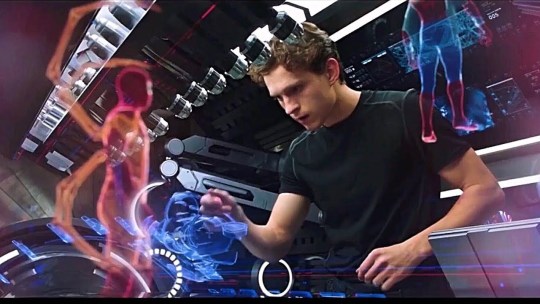
Proponents of the MCU version of Peter Parker have often defended his characterization as logical and necessary in context. But is this really the case?
Tl:dr version: No it is not.
Forgive some laziness on my part because I’m going to be presuming everyone’s familiarity with the comic book iteration of Spider-Man and his MCU adaptation for the most part. To say there is a divide between many fans of former vs. the latter would be an understatement.
Detractors (which I count myself among) typically sum this up as the character being reduced to ‘Iron Man Junior’. In general this refers to MCU Peter Parker’s hero-worshipping of Tony Stark/Iron Man, their father/son relationship and the similar emphasis upon high technology in their hero identities. A connected point of contention is Peter’s aspiration to become an Avenger.
This was outright confirmed by Tom Holland himself in an interview for the then upcoming ‘Spider-Man: Homecoming’.
"I think the difference now is that Peter Parker finally has an all-time goal, and his goal is to become an Avenger…Everything he does, even though he's doing it for the right reasons, is done so that one day he can become an Avenger and prove himself to Tony Stark. And I think we've never really seen Spider-Man with that kind of motivation before."
Defenders of this take upon Spidey have argued that this portrayal makes sense in context.
After all, Peter Parker is a teenager who’s grown up in a world where the Avengers are beloved, especially Iron Man. Plus in the comics (under J. Michael Straczynski’s pen) there was a time when Peter and Tony shared a father/son relationship. Tony even equipped Peter with a high tech costume as he did in the MCU. Spider-Man early in his career attempted to join the Fantastic Four in ASM #1 and later the Avengers in ASM Annual #3.
The problem is these defences just don’t hold up to scrutiny.
Let me first be upfront about my philosophy towards adaptations.
I in no way shape or form demand nor expect adaptations to be 1:1 panel to screen translations of the source material. I fully respect that changes are a necessity.
One of many 22-page comic book stories put out every month in the 1960s inevitably needs to be altered when jumping to a 90+ minute live action film in the 2010s.
Even the characterizations need to be altered where necessary if the source material is found wanting. *side eyes Emma Stone’s Gwen Stacy*
However, my attitude is that adaptations should at minimum respect the spirit of the source material no matter what. To do otherwise defeats the object of adapting the work in the first place. If a film is just borrowing superficial traits (names, costumes, powers, etc.) and but not representing the spirit of the character, then creatively speaking it might as well be an original character.
This is the case with the MCU version of Spider-Man. A fundamental component of Stan Lee and Steve Ditko’s original vision for Spider-Man was that he was in essence the anti-Robin.
At a time when teenaged characters were sidekicks (Dick Grayson), supporting characters (Rick Jones) or the ‘kids’ in teams (Johnny Storm) Peter Parker was unique as a totally independent teen hero. Of course that independence only applied to his life as Spider-Man, but that was part of the point. Spider-Man was his escape and release from the pressures and hang ups of his regular life, which included his doting yet coddling aunt.
A critical part of this was that he was a self-made man. No elder mentor guided him in the use of his powers, helped him create his equipment or provided any sort of advice/accountability for Peter. He did it all himself. He was a loner.
On a meta level this is partially why Stan Lee (and for the longest time consequent writers) showcased Spidey not jiving with super teams. It was done to emphasis Peter’s independence and thereby his uniqueness within the genre. Even if that’s not so unique anymore (even in film), it’s still a baked in component of teen Spidey’s story. An essential aspect of who he is as a character.
As is his working class status.*
In fact these things go hand-in-hand. Just as Peter had to shoulder an ‘adult hero’s’ burden as Spider-Man (noticeably Lee didn’t dub him Spider-Boy or Lad as would’ve been common back then he also had to struggle for every penny. With the death of his uncle and his aunt’s poor health the burden of household provider fell on his shoulders.
When you take all this into account, having him fanboy over the Avengers and have a superhero mentor (let alone a billionaire one) is an aggressive misreading of the character.
The best way I can illustrate this is with an analogy from the opposite end of the spectrum. Imagine if you will a movie depicting Dick Grayson’s transformation into Robin. Except Batman was wholly absent. Not even an off-screen presence.
That is how poorly MCU has missed the point of Spider-Man.
And it was never necessary.
Contrary to defenders of the MCU, making Peter an Avengers/Iron Man fanboy was not the only logical direction to go with the character.**
Yes, in Peter’s world most kids would revere the Avengers and Iron Man. But in the real world not every kid or teen likes the Avengers characters or movies. Just as not every major pop culture phenomenon has ever been universally embraced by contemporary kids/teens. In the 1980s not every kid loved the Transformers or the Ninja Turtles. In the 1990s not ever kid loved the Power Rangers or Pokémon.
Of course, most kids did, just as most kids like the Avengers characters today. Similarly most kids in the MCU by extension would look up to the Avengers. However, if anything this could actually help generate a more spiritually faithful rendition of the character. Consider that on literally the first page of Amazing Fantasy #15 Peter Parker was mocked by his classmates for being an outsider. A bookworm who didn’t know the difference between a cha-cha and a waltz.
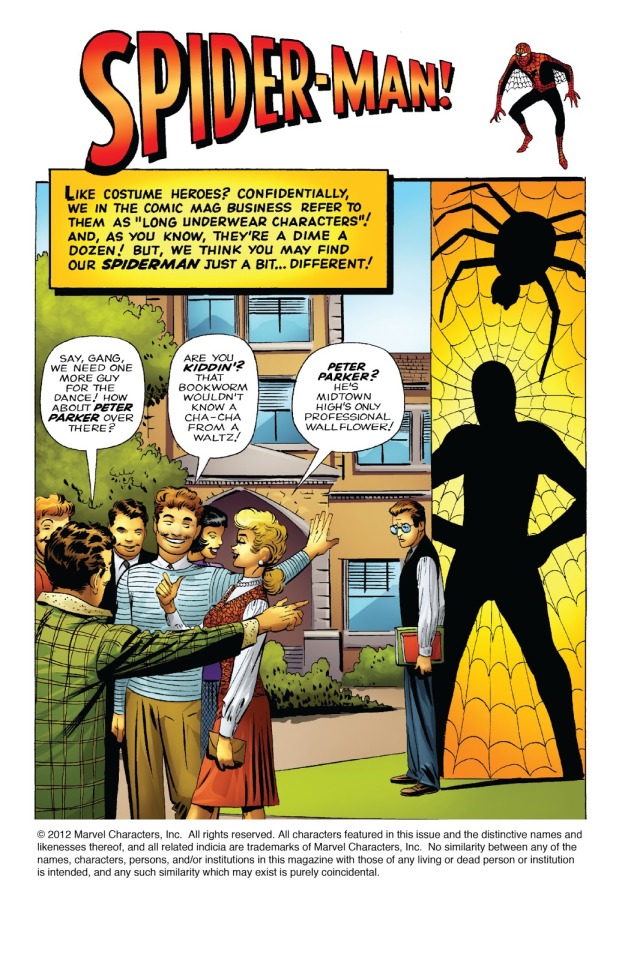
In the context of the MCU wouldn’t Peter’s lack of familiarity or interest in the Avengers make for an appropriate updating of that characterization?
Let’s also consider that in the context of the regular 616 universe Spidey held little reverence for any of the heroes who had preceded him. This included Captain America and other WWII heroes as well as the Fantastic Four and their leader, the world famous scientist Reed Richards. Peter would’ve surely known who Reed and Cap were but as originally depicted by Stan lee himself, he wasn’t falling over himself during any of their early encounters.
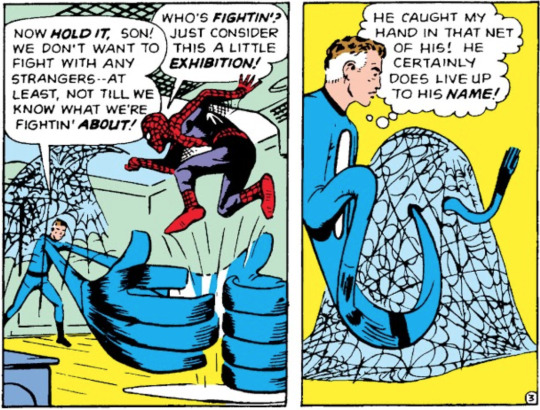
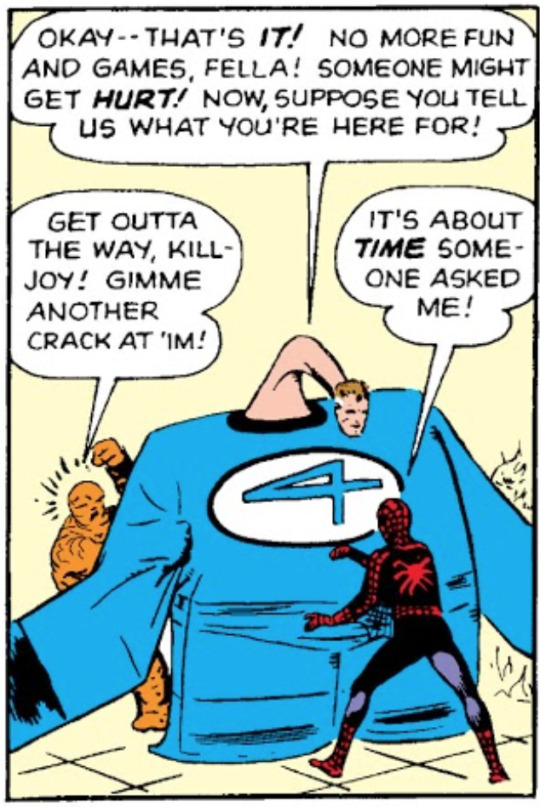

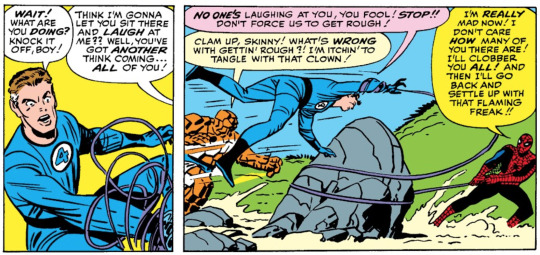
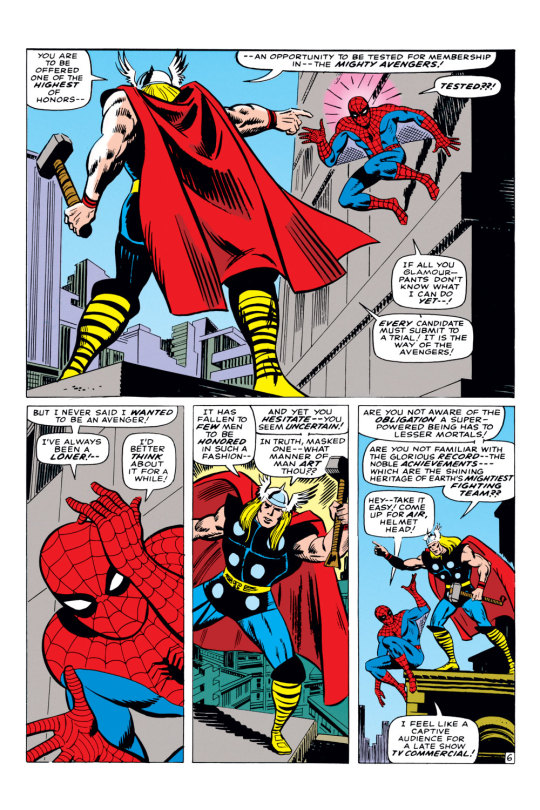

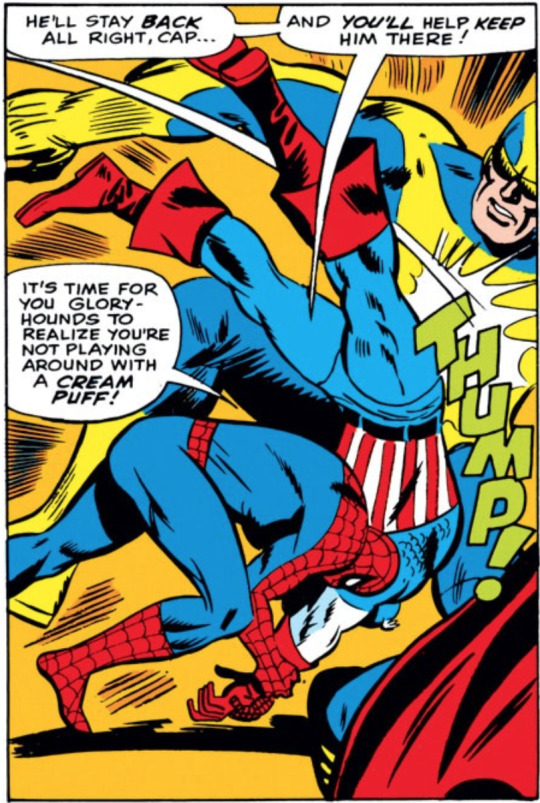
So there was already a precedent in the comics for Spidey to not be dazzled by famous A-list heroes, meaning it’d be totally believable in the context of the MCU. Indeed this was likely part of the point of the character. Just as being Spider-Man didn’t improve his outsider status within the high school hierarchy so too was he an outsider among his super hero peers. The nerd to the Avengers jocks if you will.
But what of those comic book sources that say otherwise? Surely ASM #1, ASM Annual #3 and JMS’ run on Amazing Spider-Man corroborate the MCU’s take upon the character.
Yes and no, let’s tackle them one by one.
In ASM #1 it was made explicit that Peter wanted to join the F4 for purely practical reasons. His family needed money so he hoped the F4 could provide and income. When he learned otherwise he departed as quickly as he’d arrived.


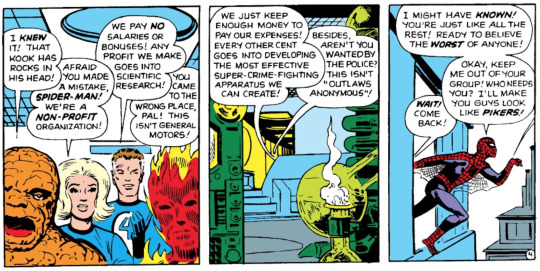
In ASM Annual #3 Peter was far from eager to join the Avengers and was equally unimpressed with them as a group.

He actively sabotaged his own chances to join at the issue’s conclusion.
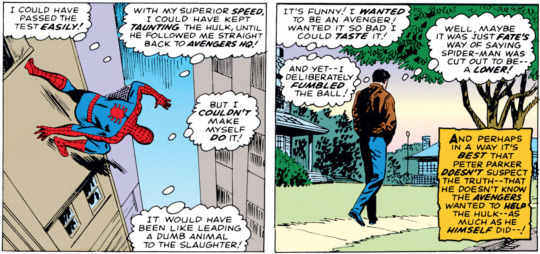
As for Straczynski’s run…sigh…strap in.
At face value this run does indeed seem to support the MCU’s rendition of Spidey. However, the support it offers falls apart due to two factors.
The first is that, well…Peter and Tony’s relationship was pretty nonsensical.
I’m no Iron Man expert so I do not know how old the character would be roughly. From my impressions of the character though circa 2006 he wasn’t even in his 40s yet. Peter by contrast was 30 years old when you do the math. Unlike Tony he’d had several very serious romantic relationships and was back then happily married (barring a brief trial separation). He and his wife had lost a child and even believed one another dead at one point or another. Peter at the time was also working as a teacher to teenagers where he was clearly framed as their elder authority figure.
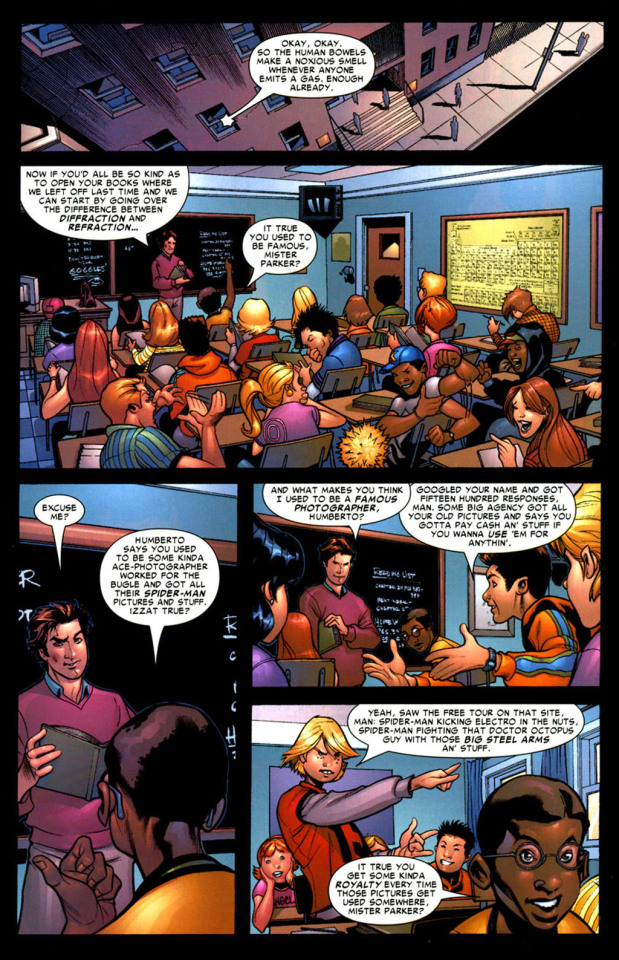
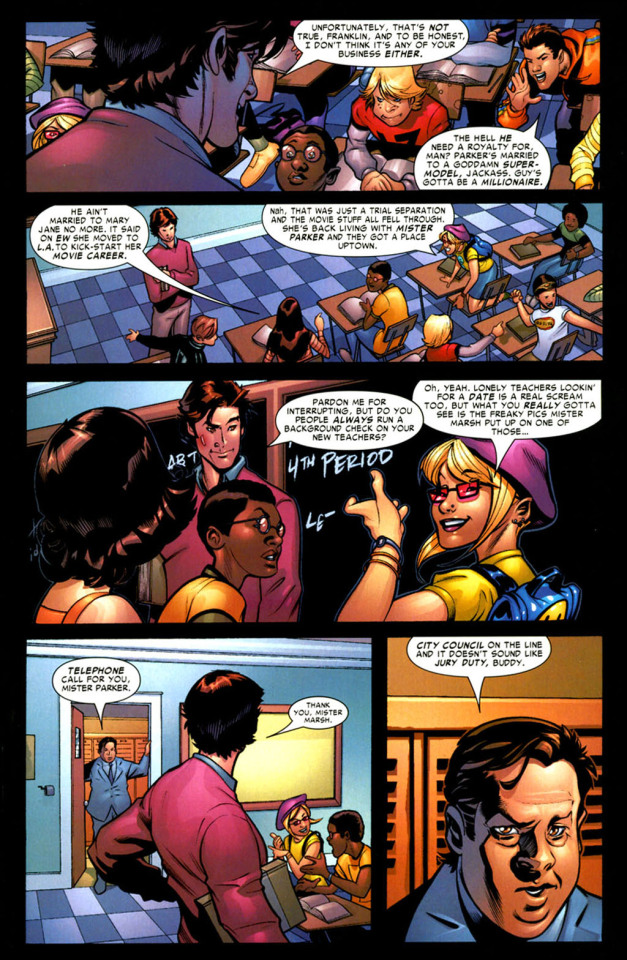
What I’m saying is that Peter was if anything more emotionally mature than Tony at this time. Or at least he was mature to the point where he was not going to view Tony as his father figure given the minor age discrepancy.
The relationship was clearly engineered with the pre-determined endgame in mind. That endgame being the ‘Civil War’ storyline wherein Peter would unmask upon Tony’s request and subsequently become a fugitive in defiance of Tony’s unethical practices. The latter would entail Tony threatening Peter and the pair coming to blows.
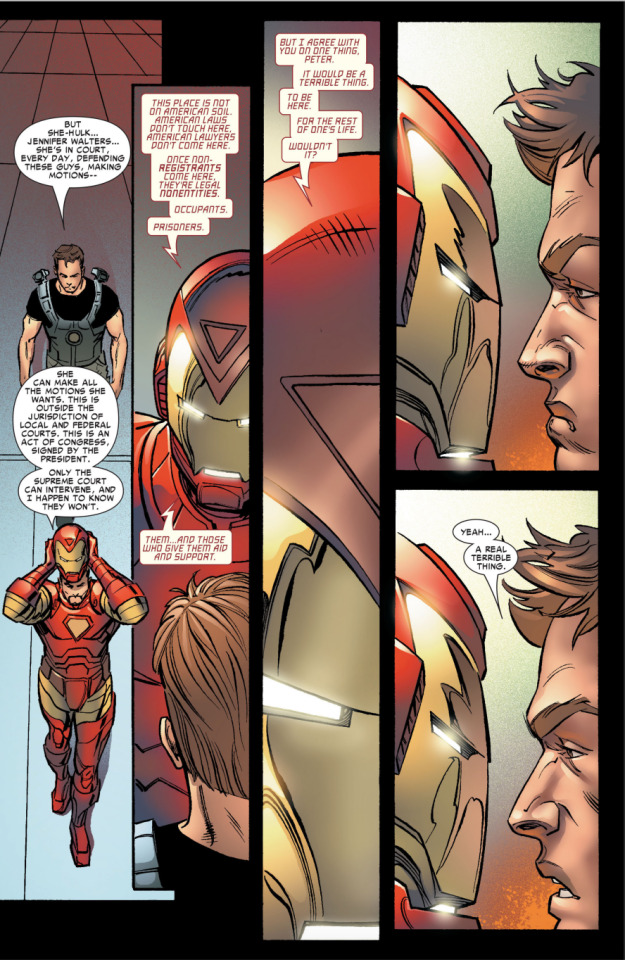

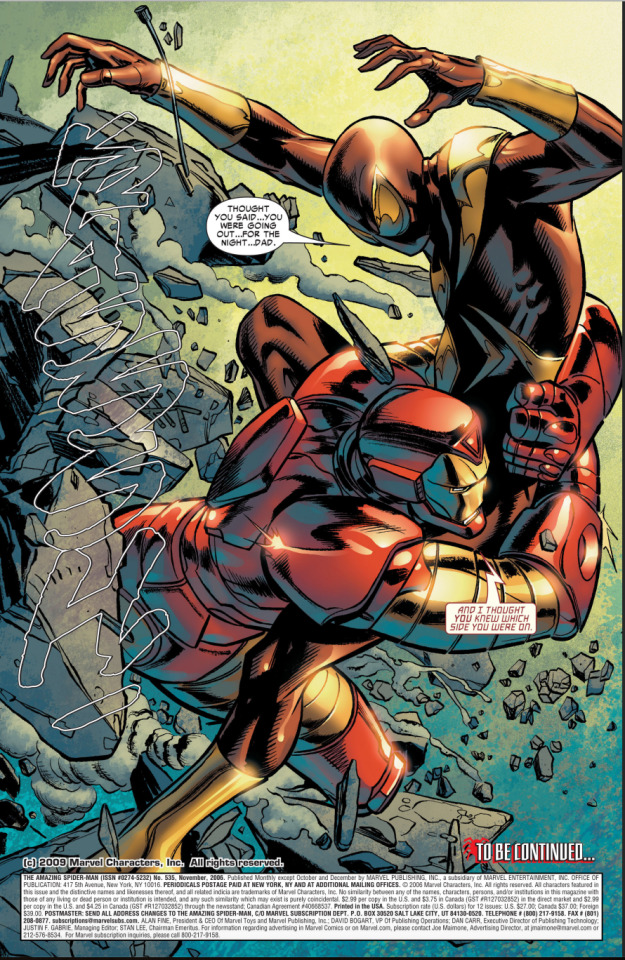
This brings me to the second factor. The totality of Peter/Tony’s relationship was designed to be a testament to how it was ultimately a bad thing.
Tony wasn’t the man Peter believed him to be.
Tony didn’t have Peter’s best interests at heart.
Tony was willing to spy, threaten and even attack Peter.
And along the way Peter and his family lost their home and the safety of Peter’s anonymity. The end result was Peter’s life becoming a shell of it’s former self, with his loved ones in serious danger. In fact you could view his fugitive status as a way to recreate the ‘good old days’ when Spider-Man was feared and hated by the public and authorities.
Had Peter retained his independence rather than surrendering any part of it to his ‘father figure’ Tony Stark, much of this could’ve been avoided. If nothing else Peter might’ve been able to unmask privately rather than publicly.
Whilst the MCU addresses the first factor via de-aging Peter, it has no answer for the second. It borrowed from the JMS run superficially and ditched the greater subtext regarding how Peter shouldn’t have formed a relationship with Tony.
I’d like to conclude by addressing the most obvious counterpoint to everything I’ve said.
If Spider-Man were more comic faithful wouldn’t it undermine the entire point of him being in the MCU? The appeal of the concept was seeing Spider-Man interact with the wider MCU. From the audience’s POV seeing yet another Spidey flick confined to using Spider-Man exclusive elements might as well have been produced solely by Sony.
The problem with this argument though is that it doesn’t consider the myriad of possibilities available. Spidey could interact with the wider MCU and still be in character.
I’m no writer but off the top of my head:
Spidey could have defied the Sokovia Accords and thus been wanted by the authorities (a neat updating of his traditional ‘outlaw’ status), consequently coming into conflict with Iron Man
Spidey might have still dueled the Vulture and interacted with Tony as he did in ‘Spider-Man: Homecoming’. However, instead of gradually realizing he should be a ‘friendly neighborhood’ hero, he could call Tony out for ignoring small scale crime which indirectly ‘created’ the Vulture in the first place
Following ‘Avengers: Endgame’ the dissolution of the Avengers combined with the huge uptick in the population and displacement of citizens might’ve caused far more street crime that Peter would have to deal with. The remnants of H.Y.D.R.A. might’ve exploited this to gain a foothold upon which to rebuild.*** That might’ve warrant an appearance from more grounded heroes like Hawkeye or Ant-Man
An environment like this could’ve been exploited by Quentin Beck to frame Spider-Man, exploiting his already shaky public reputation and make himself look more appealing by contrast
Or Hell just do ‘Nothing Can Stop the Juggernaut’ but with the Hulk as Roger Stern planned to do in the first place
I’m sure many of you could suggest infinitely better ideas.
In conclusion, no matter how you slice it, there were better options than rendering Peter Parker Iron Man Junior instead of Spider-Man.
*Peter, as depicted in ‘Captain America: Civil War’ was clearly not well off financially, yet consequent depictions of Peter in the MCU have de-emphasized this to the point where you could argue they are very probably not working class anymore.
This makes sense internally as a billionaire Tony Stark has no reason to take Peter under his wing but allow him to still dumpster dive for equipment. Giving the boy at least some modest financial stability would be a logical step in building a relationship with him and giving him more time and energy to put into his scientific and heroic pursuits.
Whilst I don’t exactly agree with everything said here, this post dives into the subject more deeply.
**And even if it was, if the context demands Peter be rendered so unrecognizable then maybe it was just creatively reductive to integrate him into the MCU the first place.
***They have after all had connections to organized crime in the comics.
#MCU#marvel cinematic universe#Tony Stark#Anthony Stark#Iron Man#Steve Rogers#captain america: civil war#Spider-Man: Far From Home#spider-man: homecoming#Captain America#pokemon#Power Rangers#Teenage Mutant Ninja Turtles#Transformers#Tom Holland#Avengers#The Avengers
126 notes
·
View notes
Note
Pt. 1-Hi! I'm a Black woman writing a Fanfiction for an anime series called Food Wars and I'm creating a sister and brother who are half-Lakota (Itazipcola Band) and half-Black American. They're going to a Japanese Culinary High School, the same school their great-uncle (Kiowa) went to when America was in Japan, post-WWII for a few years as his father was in the army. It's a very competitive school with diverse characters and cooking styles/types. They both want to travel and see a new country.
(continued) They live in Sioux Falls, SD after moving from the Cheyenne River Rez years ago. The family owns a Catering company with Native, African, and American Southern food (Mom is from VA) that does Showcasings, Chef Demos, and feeding the people within both communities while mentoring the youth. Annie (Older sis) wants to be a Pastry Chef as Andrew (little bro) does mostly savory, especially BBQ. Annie was on a kid's baking show as Andrew won kid's BBQ competitions. Both siblings want to help their communities by spreading awareness about poverty, suicide, and other stuff. They are active in their Native heritage. I did research in Natives in Japan, and I found that it's a bit mixed. Some people don't know about Natives, or that they do but only through the news and old western films. There's this one guy who went to a tribe to learn about the culture and he went back to Japan to teach his students about how the Natives truly lived. There's a Native jewelry store in Tokyo So some Japanese do know about Natives, I want to write a few small scenes where the Japanese students ask questions that are stereotypical about Natives and Black people, but they learn from the siblings. Annie begins to have a crush on a boy who is mixed indigenous (Ainu/Saami), but isn't connected to those cultures, because of his Ainu dad dying and Saami mom leaving him. He was adopted by a rich Japanese/Danish family. I want him to learn more about his heritage after falling for Annie and begins to heal from his past through learning about the Saami. Before he didn't want to do anything with them due to his mom. Andrew falls for a Japanese girl who does Medicine Cuisine. He's a expert in Nutrition and tries to help his people's health issues. They have a cute relationship. I thought of these characters just like any other person. I'm Black and I don't like seeing stereotypes. Annie and Andrew love music due to their dad formerly being in a band with only one album. They're both crafty with the Arts due to their grandparents on both sides teaching them. Annie is more outgoing, goofy, and blunt than Andrew but she enjoys the simple stuff in life and loves fashion (Vintage 60s/70s and Punk) Andrew is more quiet and shy, but not antisocial. He just likes doing his own thing while teasing his sis on her shortness and crush. He likes comfy, Punk clothing. I was just wondering what is offensive and not. I want to show their food and aspects of culture, like Powwows (I've been watching videos on Lakota Powwows) and I've been wondering if there's a coming of age ceremony. I don't want to show it just mention it. Is this where people get their Lakota name? I don't want to do religious ceremonies since that's sacred and also I'm not really religious, but what if I want to allude about it? Sorry that this was way too long!
Okay, this is a huge question but I’ll do my best to answer it with the GIANT caveat that I’m not indigenous and am only answering to the best of my knowledge. If any indigenous followers--particularly those with experience in Japan/with Japanese culture, though of course all are welcome--have thoughts or feelings, as always feel free to add more information and/or correct me!
A few observations that jump out, based on your description of your narrative framework:
Their food. Okay, while I know absolutely nothing about the food cultures you describe, I’m a huge fan of connecting with your culture through your food (and your stomach!) so I love this framing. That being said, to my knowledge African American food is fairly distinct from African food, with the former more likely to be in their cultural background given your description (obviously, in this situation you’re the expert on Black culture so feel free to totally ignore me here).
Andrew’s food interests. Related to the previous bullet point, based on my understanding Medicine Cuisine and Nutrition would be super interesting focuses for him given his cultural background. It’d be super cool to seem him integrate his various cooking specialties and heritages into nourishing food to support his people.
Knowledge about Native Americans in Japan. I do think it’s likely accurate that unless someone in Japan has personally done research, the average Japanese citizen probably knows very little about indigenous Native Americans in the same way the average American knows very little about Japanese indigenous ethnic groups.
Relatedly, I think it makes sense for their Japanese classmates to ask stereotypical questions, but you should steer clear of just plain offensive questions. As you likely know, answering stereotypical questions about your identity and heritage is exhausting and should be treated as such within the narrative. Your characters are in school to educate themselves, not to educate their classmates, so while the latter may occur sometimes I don’t think it should be their focus. So while the intent of the questioning scene may partially be to help answer readers’ questions about Annie and Andrew’s heritage (and Black and Lakota culture to an extent), remember that the ultimate goal of representation is not to educate others but to help people within those demographics see themselves on the page. And more likely than not, Black and Lakota readers won’t want to see characters representing themselves having to answer the same repetitive questions they face down all the time.
I know you only mentioned him in passing, but I have a lot more thoughts specifically about Annie’s mixed Ainu/Saami crush. I don’t want to tell you *not* to write him but I do think there are several pitfalls you need to carefully avoid moving forward.
His Saami mother. There’s a big stereotype around POC abandoning their children, being absent or flighty parents, or otherwise just failing to properly nuture their children. While I’m unaware of any specific stereotype regarding indigenous parents, I would tentatively say that doesn’t mean those stereotypes don’t exist, so tread carefully. That being said, I do know there’s a stereotype about indigenous people being alcoholics, so you should absolutely avoid characterizing his mother as such because as an outsider, you don’t have the power to subvert that stereotype.
His relationship with his heritage. I would also be very cautious while writing his arc of reconnecting to his heritage. While reconnecting is unfortunately a very real (and very under represented) process for indigenous people, it’s an extremely difficult and personal process that I don’t think outsiders are qualified to write in-depth about. Though I don’t think you should necessarily gloss over his reconnecting process, I do think it should perhaps be a side character arc, rather than his defining character arc. For example, he might mention to Annie that her passion for her heritage has inspired him to research his own family, or else maybe he’s pictured buying a book on the Saami language. (The current discussion around Rick Riordan’s portrayal of Piper’s imperfect reconnection to her Cherokee heritage makes some really good points, so I’d check that out if you’re familiar with his books. I’d be happy to link you if you’re curious.)
His adopted family. I have to admit--as the daughter of a transracial adoptee in a family full of transracial adoptees, this framing makes me very wary. While I know transracial adoption parents likely have only the best intentions, the adopted child themselves often end up hugely disconnected from their birth cultures. It’s often an extremely stressful and traumatic event, especially in cases where the adopted parents don’t learn about their child’s birth culture themselves and/or only teach the child their own cultures (in this case, Japanese and Dutch). Honestly, with all due respect, I have yet to see any fictional narratives that properly address the trauma of transracial adoptions and given everything else going on in your writing, I’m not sure how well you would be able to write about it. More in the next bullet point.
His extremely mixed heritage. While I don’t want to come across as rude, I do have to ask: what’s your intention behind making a single side character with four different cultural backgrounds, especially backgrounds that you the author don’t share? The reality is that, no matter how much research you may do, these four cultures--Ainu, Saami, Japanese, and Dutch--are very rarely found in combination, and I think you’d be hard pressed to find any #ownvoices accounts from similar scenarios that you could hypothetically draw on to write more accurately. As a result, you’d know very little about how these different cultures meld together, and you’d have almost nothing to go on to write about his mixed multicultural background and the tensions that come with it. While I understand you may be attached to his parental setup and his backstory, I would highly advise simplification to avoid straying into territory you neither understand or are qualified to write about. Given your focus on his reconnecting, I would probably recommend keeping his Ainu father alive and cutting his adopted family. That way, you cut the number of unknown cultures in half and you can truly dedicate yourself to writing his Ainu heritage and his reconnecting process well.
With regards to your actual question about Lakota religious ceremonies, as a non-indigenous person I’m definitely not qualified to answer specifics about Lakota coming of age and naming ceremonies. That being said, I know this: Native American ceremonies, rituals, traditions, and lore are often closely guarded and not shared with outsiders. And I don’t just mean outsiders don’t share in the ceremonies themselves--outsiders often can’t even learn about the ceremonies because the knowledge itself is guarded. (This information is secondhand from my Blackfoot professor last year. If I’m wrong or if any indigenous followers have more accurate information, as always I’m open to critiques and suggestions!) As you continue researching this, I’d definitely be mindful of the source; if it comes from an official Lakota or indigenous source, it’s likely okay to share or discuss, but if all you can find about Lakota religious ceremonies is from, like, someone’s blog or Facebook post or something, then that information likely wasn’t approved to share and you shouldn’t write it into your story. Given that this seems to only be a character detail mentioned briefly, you may be able to simply mention the characters’ Lakota names in passing without referencing the ceremony itself.
Sorry for the long response, and I hope at least some of this information helps!
(Also, if you read this post, this is a good example of a really well researched and thought out ISO Sensitivity Reader question. Obviously, I’ve provided what information I can and this individual seems to have done lots of research, but the execution comes down to... well, the actual execution.)
#long post for ts#ISO Sensitivity Reader#writing about race#writing indigenous characters#this is a whole essay question with an essay response whoops#bullet point tw#one of these days I will write about the multigenerational harms of transracial adoption but today is not that day
15 notes
·
View notes
Text
December 14: 1x28 The City on the Edge of Forever (Also I’m 32)
For my birthday, I watched an ep of Star Trek, because I can. It was very good and I enjoyed watching but now I’m starting to get some pretty bad evening anxiety, so!! I’m going to try to ignore that.
Here are some thoughts:
I love this wavy camera work. Space turbulence.
I recognize that this intro really doesn’t have anything to do with anything but it’s still really, like, sudden--weird time things are happening and the ship keeps shaking!
Sulu’s looking damn good today. (I say this in every ep with a closeup of Sulu.)
That was a real rookie mistake on McCoy’s part there, stabbing himself with the hypo. (Harlan Ellison voice lol.) (Still better than the original script.)
“They’ll never catch me!”
Sulu and Spock have been trading eye shadow secrets obviously. It’s a real shame that the AOS movies didn’t give people awesome makeup. I mean heck if you couldn’t force yourself to give men obvious makeup (the horror!) you could have at least done something cool with Token Girl Uhura.
Kirk sounds very formal today. Idk why, but his tone is just slightly different--calling Scotty “Engineer” and something about his log... Probably just me being weird or an effect of there being so many writers on this thing.
Damn, McCoy was almost as good as Spock, the way he knocked that guy out so efficiently.
I’m pretty sure this is Uhura’s first landing party. And she barely gets to do anything because this is the Kirk and Spock Show today.
“Unbelievable.” / “That’s funny.” Is it though?
Legit laughed out loud when Bones popped up from behind that rock, right after Uhura said he wasn’t there.
I don’t think Spock likes the Guardian. “Primitive science knowledge? Excuse you, Sir.”
The Guardian really is just like hand-wave-y sci fi lol. Uh it’s really old and really advanced so it can’t really explain itself, the point is, time travel!!!! I mean I don’t hate it but still.
Kirk is very quick to want to play with time. A little vacation away from his usual work. Getting to satisfy his curiosity and be his nerdy self and learn things. Can you even imagine TOS Kirk in AOS???
Love the dramatic moments: Kirk looking very suddenly when the Guardian says “Behold.” Jumping into the sand as he fails to catch McCoy.
Kirk’s biggest fantasy--a vacation that’s also exploration--turns into his greatest nightmare--loneliness.
“No star date” Can you even imagine Starfleet HQ getting this? “Whoops we just destroyed literally everything. Don’t worry, we’ve probably fixed it if you’re reading this.”
History nerd Kirk. Correctly identifying the Great Depression. If Spock thinks THIS is barbaric, what would he think about today?
“I’m going to be difficult to explain in any case.” Truly, only Kirk, and his love goggles, would choose the ONE alien in his crew to take with him on the first expedition into the past. This was completely foreseeable guys.
Spock’s like “That’s a cool car. Let me examine it now. In the middle of the street. While people yell at me.”
This ep starts out so dramatic and now all of a sudden it’s a comedy, right down to the music. (Again, a sign of how many writers had their hands in this.)
“I’m going to like this century. Simpler, easier to manage.” LOL.
“You’re a police officer. I recognize the traditional accoutrements.” Spock is having such a good time watching this.
Really relying on American racism to explain the alien, huh? “I know you don’t know what Asians look like so.... he’s Chinese.”
“I double dog dare you to put together a computer, Mr. Spock.” Effective.
Put on the hat, the hat!!!!
Starfleet’s greatest Captain couldn’t come up with a fast fake name for Spock.
Kirk looks good in this outfit. Actually the outfits in general are great.
Honestly what does Edith think of these weirdos?
Kirk hears trash talk: “Shut up. SHUT UP.” No talking badly about women in THIS house.
She should have been living in our time. I wonder if she always thought space was cool or if Kirk (and uh literal actual alien Spock) inspired her.
Spock’s eye roll at “I find her most uncommon.”
Kirk definitely did manual labor in high school.
Spock really is building a whole-ass computer.
“I’ve brought you vegetables? What else do you want??” Is this the first reference to him being a vegetarian?
And there was only one bed...
Edith’s reaction to Spock’s sass is hilarious. She’s really not confused by him at all.
When Spock’s straightforward, honest answers about why he stole the tools don’t work, Kirk steps in with the charm offensive.
“By his side, as if you’ve always been there and always will” is basically the toast at their wedding.
Favorite thing about Edith remains that she meets an actual alien and says eh, not so weird, and then looks at the Iowa Farm Boy and is like ????????? does not compute.
“Why don’t you want to talk about the war? Are you a war criminal?”
I feel like Kirk gets a weird kick out of saying he and Spock “served together.” And like it’s literally the truth? But he has this little smile like he’s getting away with a cool lie.
Only about 10 years until we get the cool alien book about love!
Spock bringing out the big guns with today’s requisite “Jim.”
Imagine meeting McCoy like this: weird-ass uniform, rambling and paranoid. Thinks he’s met a humanoid alien. Getting so upset about 20th century hospitals he starts crying and rolling on the ground. He’s so empathetic. I love him.
What a way to go, killing yourself accidentally with a future weapon you steal from a 23rd century time traveler you mistake for a drunk.
Bones is so good at not being seen. That’s straight up comedy how he just passes by behind Spock. There are really weird, random comedy elements in this.
“She was right but at the wrong time.”
Kirk’s in love with Edith... I mean he’s not lol but that IS what a romantic such as him would say.
“I’m a surgeon, not a psychiatrist,” says the man who testified as a psychiatrist at a court martial in a previous episode.
How convenient that U.S.S. is an abbreviation she’d recognize.
“I don’t believe in YOU.”
I know this isn’t actually true, but it feels like Spock literally just came out of the room to be jealous while Kirk and Edith kiss.
Spock’s lesson “do[ing] as your heart tells you to do” is wrong.
So McCoy just got over it, I guess. Kirk was all ready to manipulate time to stop the accident but all they needed to do was find him, catch him, and sedate him a while I guess.
“My young man.” So cute.
The reunion hug with McCoy is adorable. I watched it 4 times.
Yet another Kirk vacation fantasy foiled.
No final talk on the bridge... Very dramatic and sad.
This IS a really good episode but I just still can’t get behind calling it the BEST Star Trek episode. To me, it doesn’t feel enough like Star Trek to be the best. It’s a really great story, and it’s entertaining to watch, but it’s not representative. Too few of the crew--not even really that sci-fi-ish at the end of the day. Like I said, the Guardian is really generic and ill-explained, just a prop for the main story. And while that main story is obviously all about time travel and the effects of time travel, even THAT is incidental to the real point, which is the moral question: save one or save many? But it’s not even a conundrum, like in TWOK/TSFS,because there is no real choice. Obviously Kirk is going to let Edith die. To do otherwise wouldn’t just damn many more people in the 20th century to death, it would damn his crew and his ship and, in a way, himself. So it’s more like, well, inevitably, she will die, and he will let her, but it will be really sad. So the point is just this tragic, doomed love story. Which is not a bad story in any sense, but it’s not what one generally primarily associates with TOS.
I’m not sure this is making sense because I’m just working out my thoughts as I type.
I do think there’s some interesting stuff here: I think one could do a lot with what this ep does for Spock’s development, since we don’t hear too much from him but he’s pretty intimately involved in all this. And the lessons it’s teaching him about feelings and vulnerability are...not great.
Also Uhura saying “at least be happy” in the beginning ties in interestingly to the rest of the narrative--he could have chosen his happiness, in a way, at least fleetingly. Perhaps it would have been more interesting if Kirk had ever really considered letting Edith live--but then, would he be Kirk if he ever considered it, seriously, out loud? Am I being dense by thinking the narrative should have said this in so many words, when it’s obvious enough as is?
I’m also not totally sure about the... message. I’d prefer to say there isn’t one, honestly, because of the way the conundrum is set up: as a non-conundrum. Because, obviously America should have entered WWII; if ever there was a war that was worth fighting, this would be it. Hence there’s no need to really interrogate whether or not Edith’s death was right. There’s no way it was not right. There’s no complication there, allowing the story to focus on the tragedy of Kirk’s inevitable decision instead. It could have been a different story, about weighing the pros and cons. And then possibly also a story with a moral lesson attached to the decision Kirk makes: about the many versus the few, for example, or about war specifically, since obviously this is airing with Vietnam as a background.
It could also have been a story about fate. Obviously, McCoy can and does change time. But you have all 3 of them ending up at the same place/time, right near this Big Event. You have the almost-fall on the stairs, implying death is out for Edith. You have the total set of circumstances around her death: as it actually plays out, she’s only there BECAUSE of Kirk and Spock. Were they always there? Does she get killed in a slightly different circumstance in timelines without them? The way the story plays out, all of these details seem so beside the point--again, the story uses time travel but isn’t really ABOUT time travel; it uses sci fi tools but is not telling a sci fi story--so it’s not even really worth interrogating.
(Other than just now, when I did.)
I think it’s pretty obvious that a lot of people had their hands in this story: Kirk’s very IC romantic nature is first and foremost and I like seeing this part of him, but the Command part is kind of hidden; there are moments of tragedy, in the traditional sense of the word, but also other parts that feel like Tomorrow Is Yesterday in terms of the style of comedy; the sci fi stuff is really random.
None of this is really criticism, just thoughts. It’s definitely a really interesting episode.
Next is the FINAL EPISODE of S1, which is RIDICULOUS imo. I’m fairly sure Operation Annihilate was one of the first TOS episodes I saw. I have a real soft spot for it so I’m looking forward to watching.
4 notes
·
View notes
Note
How did you find HBO war??
My mom! 🤗 She’s been studying WWII all her life, so I grew up with it but never really got as into it as I am now. It was really a few years ago that I got interested in specifically Band of Brothers after I saw the movie Unbroken in theaters. Learning about the life of Louis Zamperini made me want to learn about the lives of the other men who fought for us. I wanted to know who they were and what they endured. I didn’t just want all the action because otherwise I’d feel like it’d be somewhat of an empty story.
My mom and I watched one episode of BOB a day after we got home from work and high school. I was so excited and it was the one thing I looked forward to during those days
4 notes
·
View notes
Text

headcanon dump on pokéverse lotor’s grandpa ezra because i love this man with my whole soul
(this post refers to @aeshmedai‘s unova. this post also operates with an alternate history of wwii.)
BIOGRAPHICAL NOTES

ezra was born in the 1920s, eldest son of the sincline family and next in line to becoming court alchemist. when he was a kid and young adult he was a major ass. he was born with pretty much everything--wealth, striking good looks, intelligence, talent, inheritance to the position of the harmonias’ court alchemist--except, that is, common sense. he was also born in a country where racism and other forms of discrimination didn’t exist, and didn’t want to think about the world outside unova’s borders because it was a hellish cesspool and he preferred to just exist in his utopian bubble where there were next to no problems. he was stuck-up and fairly ignorant--also lazy because his extreme intelligence meant everything came easily to him K-12. two things kicked his ass eventually though: one of them was college. the other was his future wife and lotor’s grandmother, malaea.
malaea was a native alolan student. this was still in the early-mid 1900s, when many parts of alolan culture were still outlawed. ezra saw her and was lovestruck at first sight--she was the most beautiful woman he’d ever seen and when he saw how smart she was he fell in love with her even further…she was legit the only person he’d ever met who he thought might be smarter than him and that made him crush hard. but malaea, even though she liked how (book) smart he was, was constantly annoyed by the cavalier attitude he had toward the real world’s problems. any time she brought up the problems facing the real world, his response was pretty much “don’t worry, unova’s going to fix that” and her response to that was always “THEN HOW COME THEY HAVEN’T FIXED IT ALREADY?!”
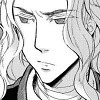
they split over a conversation about the upcoming world war ii. malaea was worried there’d be a war and that fascist germany would start conquering countries. and ezra was just saying the same “don’t worry, it’ll be fine! unova’s going to stop them and this will all be over before you know it.” (narrator vc: it was not, in fact, over before he knew it.) he went on about how he had relatives in the army who would never let this injustice stand, how unbeatable unova’s knights were in battle and how if germany’s leader tried to pull anything she would quickly find her head crushed between the jaws of unova’s royal dragons. and that was it, malaea finally had enough.
she yelled at him asking him how he could be so blind, and so stupidly patriotic. she said she felt like unova wasn’t actually as great as everyone said it was, because if it was so great at saving people, how come the world still had so many problems? and if unova couldn’t solve what was going on in so many other parts of the world, what guaranteed the possibility that unova could stop germany? ezra just told her she ought to shut up and be more grateful to the country that protected people like her because without unova, she’d never be able to live in a place where racism didn’t exist. malaea stood up and left, telling him she never wanted to speak to him again.
things slowly got worse and worse after she left. he started out as a lazy fuck when he first went to college because he thought due to his genius intelligence he could just breeze through his coursework and spend the rest of the time partying, getting drunk, playing hooky, performing as a coordinator and doing dumb stunts with his pokémon……until he failed out of college. his father not only kicked him out of the house and told him to get a job, he also removed ezra from the succession to the court alchemist position. he did not know where the heck to even start getting his life together because he had never truly learned how to be an adult--which is part of what drove him to join the army.
when the war came, it was at this point of his life that he had an awakening. he had felt so secure in the knowledge that unova was going to stop the rise of fascism and halt the crimes being done to jews and romani in europe that he hadn’t fully comprehended the fact that they would have to do something drastic to stop it. he had spent all his life idolizing unova because he thought it could save the world from any disaster, but he had never even attempted to wrap his head around the fact that in order to save the world you have to get off your ass and actually save it. so he finally did it. he got off his ass. he vowed to help save the suffering peoples of europe. and he enlisted.

he came back from the war a changed man. no longer was he this arrogant, pretentious little boy who wanted to just ignore all problems that didn’t directly affect him. on the battlefield and in the liberation of concentration camps, he had seen the horrors of the world…and most importantly, he had seen firsthand that unova was not in fact guaranteed to prevent all those horrors from happening. everything he thought he knew about himself and the world was completely shattered over the course of six long years 1939 - 1945, and he wrote about it in a memoir that left out not a single detail.
malaea read his memoir, shocked that someone as immature as him had chosen to fight--and she was truly moved by the transformation that he had gone through. she got ahold of him and told him she was glad he’d grown so much, and that she wished to be friends again. ezra, who had loved her all this time (and even had said so in his memoir), was overjoyed. he didn’t expect anything from her romantically; he was just glad to be in her company again. as it so happened, the two of them fell in love. they married soon after reuniting, and had three beautiful daughters--the youngest of which was honerva, lotor’s mother.
while he was writing his memoir and reuniting with malaea, ezra began questioning where to take his life next. he had always “wanted to” be court alchemist, but the war made him question whether he actually wanted to be an alchemist or whether he was only attracted to the prestige and the trappings of the position. after going back to school (and not being a lazy little bitch while studying), he decided to major in psychology. he had felt the effects of the war in himself and seen it in others, whether they were fellow soldiers or concentration camp survivors that he had helped rescue, so now he saw his life’s path as helping them through their traumas. to the shock of everyone in his family, he refused the position of court alchemist and went on to become a therapist specializing in PTSD trauma. he is now one of the world’s leading experts on the topic, having written many books and papers on the topic that have been translated into multiple languages, and having given lectures all over the globe.
OTHER NOTES
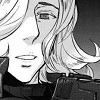
his heritage is german jewish (ashkenazi), specifically prussian. and he is very white-passing, with blond hair and blue eyes.
no one is sure how high his IQ is, because he has received the maximum score on each IQ test that he has taken. however, it is estimated to be at least 180.
he speaks seven languages: english, unovan, hebrew, yiddish, german, japanese and alolan.
in the army he rose to the rank of sergeant, and he won a medal of valor. he still has his old military uniform and his old gun, and he treasures them greatly.
he is honestly just? so good? so pure?? like help this may be the first genuinely good--not morally grey or otherwise fucked up--character i’ve written and might possibly maintain an interest in. he is 100% the wholesome influence that pokéverse lotor needs in his life like g o d i’m so glad i retconned his death because now i can write him being the good bean he is and AAAAAAAAAAAAAA
despite being 99 wholeass years old, he’s still physically young, and he will be for a while--as will some members of his family. this was because during wwii he was exposed to xerneas’ energy from a divine weapon crafted by the cult of valhallor (the pokémon universe’s version of the nazis). he often says that it’s such a great irony that the cult, which wanted to kill all jewish people, ended up extending the life of a jewish man and his family by potentially hundreds of years.
as mentioned earlier, he was a coordinator in his youth. he was trained in ballet and originally did a lot of appeals in the beauty and smart categories, but while he was in college for the second time, he found his true calling in cool/tough. outside of unova, everyone in those categories underestimated him in his debut, calling him a namby pamby pretty boy……until he fucking brought out his guns. most people in his position would have cut their hair and abused steroids to get bigger and look tougher, but he never did because he had a brand to maintain: he became known as the pretty boy who played with guns like it was no shit.
nowadays he doesn’t go onstage like at all, but he is pretty outspoken about harmful trends in the coordinating community--such as the trend of cool- and tough-specializing coordinators being total assholes in order to cultivate a persona.
5 notes
·
View notes
Photo

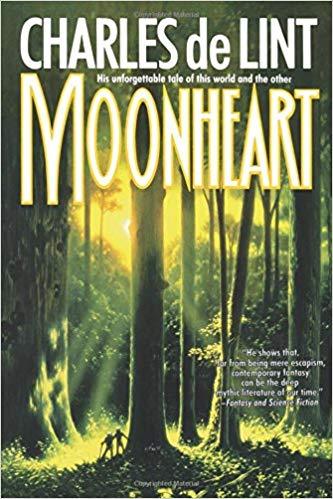
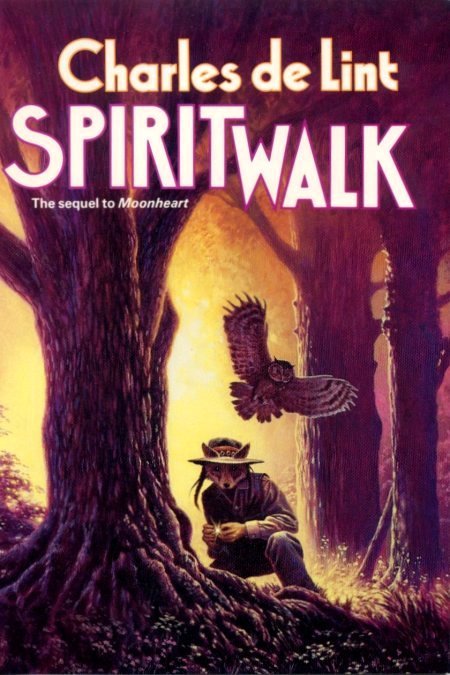
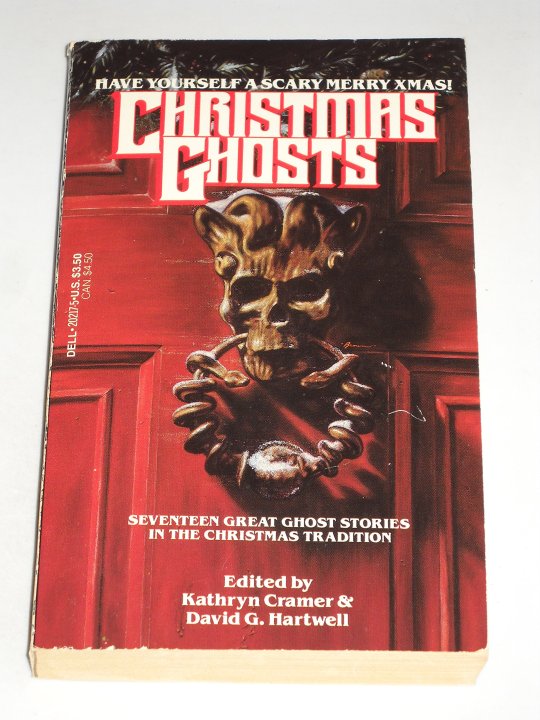
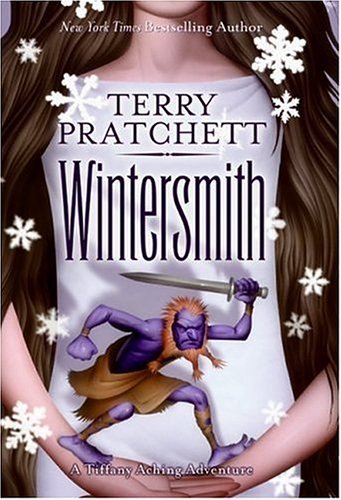



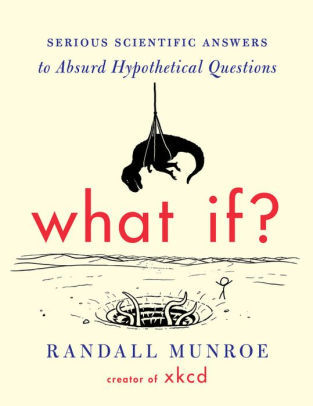

This time on Toxie Yells About Books, a mix of books with some winter-y books thrown in! Also, this is post one of two tonight, since I read a LOT since my last post.
Great Hoaxers, Artful Fakers...
If you’re interested in this subject, and are in the mood for short chapters on numerous subjects rather than an in-depth look on a few subjects, then this is a fun book! Otherwise, don’t bother.
Moonheart
If you’ve been following me for a while, you know Charles de Lint is one of my favorite authors. Sadly, this early novel is not one of his best works; the start is slow and the end is not very satisfying, but the middle part is great. I will admit I had high expectations since I loved all the Tamson house short stories I had read, so maybe take my review with a grain of salt.
There were also some weird parts that were clearly commentary on the treatment of Native tribes, but the way it was phrased sounded like he was blaming the tribes for their loss of land & people. Now, I’ve read enough de Lint to know that is the exact opposite of how he feels on the subject, so I’m going to chalk it up to poor phrasing. It was very weird to read, though.
Spiritwalk
There was enough good in Moonheart for me to continue to the sequel- although it’s not really a sequel, it’s more of a collection of short stories about the Tamson House and it’s residents. I enjoyed this book more than Moonheart, and it’s not necessary to read Moonheart to understand what’s going on in this one, so give it a try if you’re in the mood for early urban fantasy.
Christmas Ghosts
There were only like, 2-3 stories that were worth the time, but they were GREAT. If you find it for a dollar at a used bookstore, pick it up. Otherwise, not worth it.
Wintersmith
I mean, it’s a Discworld witch book. Of course I’m going to love it! That said, I did think it was weaker than the two previous Tiffany Aching books, but Pratchett at his ‘okay’ is still leagues better than most fantasy writers.
The Fifth Elephant
The Night Watch, in Uberwald! The Watch books are not my favorite Discworld series- that’s the witches, obviously- but I do love Vimes. If you’re familiar with the Watch, then you should definitely read this; if you haven’t read any of the Watch books, this is not the best place to start- try Guards! Guards! or Men at Arms instead.
They Called Us Enemy
It still amazes me that so many people in the US did not learn about the WWII internment camps, because I definitely remember doing a project on them in elementary school. Anyways, this is a subject that should not be forgotten, and George Takei’s first hand account of his time in the camps is an important read.
Serenity Rose: Ten Awkward Years
There was a time in my life where most of the comics I read were from SLG, and Serenity Rose was my favorite (mosty because of Vicious Whisper, who’s still one of my favorite characters).
The only part of this collection that was new to me was the third book- and some of the extras, of course- so this was more of a reread for me. But it was an enjoyable reread! I had forgotten quite a bit, and some of the more emotional moments hit a little harder now that I’m no longer a teenager. The ending was a bit open, but I found it to satisfying- it fit the themes of growing up, finding yourself, and carving out your place in the world. A good end to a good comic.
If you like witches and stories that deal with the struggles of being in your early twenties, you can read the whole thing for free here, courtesy of the artist!
What If?
Exactly was it says on the tin. If you like practical science applied to absurd scenarios in a comedic fashion, you’ll love this. Sidebar, but please check out xkcd if you haven’t- it’s delightful.
Trick of the Tale
It’s trickster tales from around the world with lovely illustrations- what more could you want?
2 notes
·
View notes
Photo
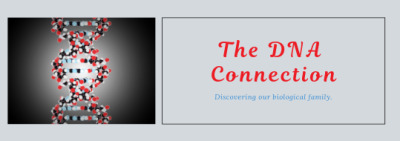
My mom was adopted when she was 2 days old. I don’t ever remember a time in my life when I didn’t know that fact and neither does she. There was never a big shocking revelation about it. It was just always a fact of all of our lives.
My grandparents, Harry & June (Pops and Mama), were two of the most influential people in my life. When I think about celebrating International Women’s Day, I think about Mama and all she accomplished in her lifetime. She was raised on a cotton farm in Arkansas and was one of only 6 siblings to have a career outside of farm life. She was educated, something rare for a woman born before 1920, worked for a time as a teacher, and then for the State Department. She met Pops after WWII (long after a woman of her time should have been married) while they were both working in China, and made him chase her for months before she agreed to go on a date.
Harry and June adopted my mom some years later after they could not have a baby of their own. They were back in the states and reached out to a lawyer in Reno who had been a WWII buddy of my grandfathers. He helped them arrange the adoption of a baby girl, and the rest, as they say, was history.
For the next 60 years, all my mom knew of her biological family was that her birth mother was going through a divorce when she decided to put my mom up for adoption. We did know that she was originally supposed to be adopted by another family, one that ended up wrapped in a scandal, but that the lawyer switched her at the last minute and gave her to my grandparents instead.
My mom was raised as an only child, completely adored by Harry and June, and was their entire world. When my parents moved to Texas for my dad’s job, they followed not long after and were everything we could hope for in grandparents. We have always enjoyed poking fun at who my mom’s people may be, buying her birthday cards in other languages, coming up with elaborate stories about how the Queen would be coming for us one day, celebrating “our people” with a variety of cultural holidays, and more!
We lost Mama in 2000 after many years of battling breast cancer, and I was devastated. She had been a warrior and had fought with every last breath. I had just graduated high school and she made it just long enough to ensure that I had my diploma and my college acceptance in hand. Her only granddaughter was going to get an education. Pops passed away at the age of 95 in 2015. He had dementia in the last few years, but we were lucky in that, until the end, he was still there, and my kids even got to know their great-grandfather for who he was. He and I shared a birthday and were always incredibly close. He was the kindest man I have ever known. We celebrated both of their lives for what they were: lives well lived to the fullest, and always with love.
Two years ago, we were thrown a curve ball. I was getting ready for bed one night when my Facebook Messenger went off. I looked to see that I had a new message request. Normally, I would ignore these, but I had just put a bunch of old stuff up on buy sell trade, so I figured that maybe someone was requesting information about something I had for sale. I could not have been more wrong! I opened the message to see:
I sent a private message to your mom, but I don’t know how often she checks it so I am messaging you too. My name is Debra and I am looking for my half sister and I think your mom may be her. I left a detailed message on your moms Facebook. Could you let her know so she can check it?
I quite literally fell out of bed! My mom’s adoption records were closed. Her birth mother had set it up so that she could not be found! I didn’t know what to do so I took a screenshot of the text and sent it to my brother! My husband immediately thought it was a scam. My poor brother replied with “OMG Pops had another family?!?!?!” forgetting that any biological children Pops had (he didn’t) would not be biological siblings of my mom, haha! I decided to reply asking for more information before I turned my mom's world upside down. We didn’t have a lot but we did have some specific details that would identify whether this person was legit or not.
Debra continued:
I was texting (the lawyer’s daughter). Her father handled an adoption for my mother and when I told her he also handled her divorce she told me her dad helped a WWII buddy adopt a baby girl which she thought might be in that time frame. I'm not sure when she was born but the divorce finaled in Jan 19**. She was able to give me your grandpa's name and I found his obit and you and your mom. I've been looking since my mother died about 5 years she only told me and my older sister a year before she passed. I've been disappointed a couple of times even went as far as having a sibling DNA test done. Was your mom born in Reno or does she know?
Mentioning the lawyer’s daughter by name and the city of Reno was enough for me to know that this woman was onto something. Pops had stayed very close friends with the lawyer throughout his life and my mom spoke of him and his daughter fondly. We chatted for a bit longer and she shared with me that she had two other living sisters and an older brother who had passed away. Debra, one sister, and the brother were older than my mom and the youngest sister was 12 years younger. The siblings had no idea their mother was even pregnant as she left the children with her family and went to work in Reno through her pregnancy to finalize the adoption and divorce. The baby was not her husband’s but conceived during an affair. The biological father had been in town for work and returned to his wife soon after his job was complete.
Debra’s mother, Marge, spent her left thinking the baby she gave up for adoption had gone to the other family, and had kept news clippings in a box of the stories of the adoption scandal. By the time she told her daughters of this missing sister, her dementia was well advanced, and so her recollection of the years was quite fuzzy. It was this box that helped Debra and her sister begin their search. There were several children adopted to this family in order for an heiress to secure her inheritance. When the scandal broke, the children were all removed to a children’s home and other families. They were able to find the woman born around the same time, and reached out to her first. When the DNA results came back negative, they tracked down the lawyer’s family (Bob had passed some years before as well). His daughter felt comfortable sharing the name of her father’s longtime friend because she knew my mom had always known about the adoption. Could you imagine if we hadn’t known?
I did the only thing I could think of to do at 11:45 at night. I attached the screenshots to an email, and sent them to my mom and dad saying “your biological family found me last night.” There was probably a better way to share that information, but at that time of night, I was not thinking clearly!!!
The next morning my mom called and said “I’m waiting for the punch line. Where is the large woman in a mumu?” No punch line this time, mom! We met for an early lunch to talk about it. Her head was spinning! We pulled up Debra’s Facebook account and started combing through her pictures, and clicking through members of her families. We could absolutely see a resemblance. They shared my blond hair and green eyes, one of Debra’s sons had very similar facial features to my brother, and then we saw the picture of Marge in her younger years. She did look a lot like my mom. It took my mom a few days to process everything, but she decided to go ahead and call Debra back and agreed to a DNA test using 23andme. If it was negative, at least she would be helping someone along their journey.
Weeks went by as we waited. I began messaging with Debra’s daughter, but otherwise, the two families kept a distance. They were careful not to get their hopes up, only to be crushed again. Then, finally, one day they received the email they had been waiting on. They were biological half-sisters. Debra and her family were elated to finally have found their missing piece. Our family was a mix of emotions. We were all excited to meet this new, extended family, however, the revelation started a new journey of rediscovering self-identity. My mom had always been Harry & June’s daughter. What did this mean now?
My mom and I decided to fly out to meet them in their home town a couple of months later. We met all three sisters, and two of their daughters, and had a wonderful weekend connecting. It was really a crazy experience seeing what characteristics are tied by DNA other than physical attributes. A simple mannerism or a laugh became little reminders of this new bond that has always been there. They showed us around their town proudly, introducing my mom to everyone who had a tie to their mother. My new cousins and I invented a drinking game: every time someone said how much my mom looked like Marge, we drank! I was drunk by lunch! It was a wonderful weekend of bonding and learning about the woman who made an impossible choice, sending my mom’s life in an entirely different direction.
The two years since have allowed us time to reflect and digest the new twist in our story. While we are now connected to these wonderful people on the other side of the country, we came to the realization that, when Marge gave my mom up for adoption and gave her to Harry and June, my mom became 100% their daughter. Our history is forever connected to them, their legacy, and the lessons they taught us. When I speak of my grandparents, it will always be Harry and June that I’m referring to, and always be them who I adore and miss. I will forever be grateful to Marge, and the choice she made. I wouldn’t be here today if she hadn’t made it! I love my new aunts and new cousins, but differently than those who have been a part of my life since the beginning. I believe they feel the same, as some have reached out to connect, but others have not. Those who have not probably feel the same as a few of our family members in that they know who their family is, and to them, we are basically strangers, and that’s ok too. My mom is glad to have a connection with her sisters, but the bond will never be as tight as the one the three who were raised together share. She may be their sister but she will always and forever be Harry and June’s daughter.
1 note
·
View note
Text
on Steve Rogers drinking milk
I’ve read more fic than I can count where someone sees Steve drinking a glass of milk and thinks to themselves how wholesome / cliche / appropriate that is.
And I don’t think that’s actually very likely or in-character.
Are you ready to learn a bunch of random history and sociology about cow’s milk in the US? HERE WE GO
So yes dairy agriculture has been around for over 10,000 years, pasteurization became common practice at the end of the 19th century, and yes, people definitely drank milk in the 30′s. I’m not saying otherwise.
But it was not common then the way that it was in, say, the 60′s and 70′s. It was mainly for children, babies in particular. It was also associated with the temperance movement, who pressured factories to serve workers milk (instead of beer!). Mostly, dairy was used for making things like cheese and butter, not bottled milk for drinking. (Again, this existed but was not as mainstream as we think it was at the time.)
Also, given how ill Steve was, I would strongly suspect he was lactose-intolerant and therefore never developed a taste for it.
Milk did have an upswing in popularity after World War I, when there was a milk surplus. This is when pro-dairy lobbying first starting getting big in the US.
But it got really big after World War II.
During World War II, the dairy industry expanded a lot due to military demand. Milk was used for rations for soldiers, and to make certain kinds of plastic. So the government poured money into the dairy industry.
When the war was over, they had way more dairy farms on their hands than was in any way reasonable, and dairy farming had become a giant industry and political interest in its own right.
This is when lobbying and a lot of the myths we have now about milk being “essential” for health got even bigger. This is how we got government food pyramids with “dairy” as its own category. This is how we got milk as a legally required part of public school meals. All this had a huge impact on US culture’s assumptions, expectations, and interpretations about drinking milk.
(And those myths are myths. Most of the vitamins in commercial dairy are added. Milk is not a particularly healthful food. It is not particularly high in calcium. Kale, bok choy, and broccoli all have higher rates of calcium absorption than milk. Non-dairy milk alternatives are comparable--and in some cases superior--in terms of calcium, protein, and other healthful vitamins.)
Meanwhile, more and more science (as in, studies that are not funded by the dairy industry) shows that not only is cow’s milk not a crucial part of human diet, it’s also probably... not very good for us. For one thing, there’s the fact that at least 65% of humans are lactose intolerant (one site I found said over 75%).
So, milk consumption has been declining since the 70′s. Pro-dairy propaganda has been working hard to fill in the gaps, though, so US culture is still permeated with the idea of milk being healthful, as well as “pure” and nostalgic, like something from childhood. It’s why we think that it’s “natural” and healthy for adult humans to drink tons of cow milk. It’s why we think of dairy consumption as something humans have always done (when again, it’s only become really widespread in the last few decades, and was not super prominent when Steve was coming of age).
Milk lobbyists are doing most of this, of course. Milk is still a huge, powerful industry.
But y’know who else is really pushing cow’s milk these days?
Neo-Nazis.
Unlike some neo-Nazi imagery, this isn’t inspired by anything from WWII. And, as far as I can tell, the phenomenon started only in the last few years, so it’s not something that existed when Steve was first unfrozen (which I think was roughly “about 10 years ago” in the current run of 616, and autumn of 2011 in the MCU). But it’s very much a thing now, in part because most of the people who are lactose-intolerant are not white. (Also because cow’s milk is, visually, really white. It’s “pure.”)
I think this association is something Steve would be aware of, because he is not at all a fan of these new Nazis. While I don’t think it’s a reason he would stop drinking milk if he did like it, I do think it’s an association that people writing him should be aware of.
So yeah, this has been my essay on why Steve chugging dairy milk Does Not Sit Right With Me, which no one asked for.
Further reading:
How we got duped into believing milk is necessary for healthy bones
The Surprising History of Milk
How did milk become a staple food?
How The Government & Dairy Industry Tricked Us Into Thinking We Need Milk
How the Dairy Lobby Convinced Americans that Cow’s Milk = The Best Source of Calcium
How Cow's Milk Went From a Basic Beverage to a Dismissed Drink
Milk, a symbol of neo-Nazi hate
How the alt-right uses milk to promote white supremacy
We Need to Talk About All of the Symbolism in Get Out
Most Human Beings Are Lactose Intolerant: Here’s Why
Caveat: I am white. I am lactose-intolerant. I have been vegetarian for over 20 years and have avoided dairy for about 15 years. (I am consuming dairy regularly now for various health, financial, and mental health reasons, but pretty much just cheese, which since it’s fermented doesn’t bother my guts as much, and as small ingredients in processed foods or restaurant meals.) I oppose the dairy industry due to animal rights concerns, and this definitely influences my opinions on the culture of dairy consumption. I am not judging people who love dairy and chugging cow’s milk. You do you, my friends. Also cow’s milk is chemically very different from nondairy alternatives, and has unique properties when it comes to cooking that are not easily replicated (like in French cuisine, cheese-making, etc.). Though this is changing. Finally, I also want to remind my fellow veg*ns that there is no ethical consumption under capitalism.
#steve rogers#steve rogers meta#food history#fanfic references#fanfic research#captain america research#steve rogers research#dairy#dairy industry#history#marvel#my opinion no one asked for#my text posts
22 notes
·
View notes
Text
Evil is Boring, and Other Unexpected Things
Like a chipmunk crouching in a forest next to a nuclear reactor, Canada is in close proximity to the slow-motion disaster that is the United States of America. With a president who coasted into office on a wave of electoral fraud constantly compromising the safety of the country's information and people.
A part of me - perhaps unbelievably - is a little embarrassed to be excoriating Trump as thoroughly as I am, even though it's nearly a universally understood truth at this point - and even though his party's legislation has directly resulted in the caging of immigrants and their children, and their detainment in concentration camps.
That said, I think one of the hardest things to understand about Donald Trump is that, inasmuch as he's basically as evil and villainous as it gets, he's not the kind of villain I was raised to to expect.
What is evil?
That's a complex question, but for our purposes, I'm going to reference both aesthetics and intentions. My personal stance on evil is that it's more of a verb than a noun. One's actions, weighed in the balance of their impact, as well as the current historical or contemporary perspective, tend to determine whether or not one is classified as evil. For instance, Winston Churchill tested mustard gas on Kurdish villagers before deploying it during WWII, and the otherwise admirable Franklin Delano Roosevelt, who created the "New Deal" and a number of important social security measures for American citizens, also was responsible for the internment of Japanese-Americans. Canada has its own examples of leaders with similarly mixed legacies. In the context of colonialism and that resulting violence, it's hard to canonize any leaders, especially those in the "New World."
That being said, Adolf Hitler's actions and his legacy are pretty good examples - nearly archetypcal examples - of what we see as evil nowadays. (Well, those of us who are not neo-Nazis, anyway.)
But do they look evil?
Between Disney and other fantastical films, very clear portrayals of "a villain" emerged - a villain was supposed to be stylish, attractive, usually or frequently non-white, damaged, and either coded-gay or overtly homosexual (sometimes asexual). In contrast, heroes - especially in the nineties - were usually laid-back slackers, usually white, straight, and male; always heterosexual, and both mentally and physically well, often athletic or extremely nerdy, and usually lacking self-confidence and/or social skills. Frequently, said heroes were disproportionately popular, due to some inexplicable "leadership quality," and I'm sure many of my readers will be familiar with the token reward girlfriends usually accorded to such heroes as a matter of course.
The state of the present
Much hay has been made of the idea that young white men grew up seeing themselves as heroes based on their birthright, and therefore, have not had to do anything to deserve that mantle. Said young and less-than-young men are also increasingly fond of mocking marginalized people who dare set boundaries on the portrayals of their cultures, sexuality, and themselves.
Given that white men and white women voted for Trump in droves, and have continually shuffled out of the way when held accountable for inequality issues, I feel it's fair to say that both the left and right have come to see straight, white, cisgender, heterosexual, and able people as - well, the "enemy," or at least a source of antagonism - and as a "persecuted minority," respectively. That said, from what I can tell black people and other people of colour don't really hate white people, not really - but centuries and decades of persecution and marginalization and abuse have led to a lot of pain and entirely reasonable resentment.
More recently, in addition to the many nigh-endless microaggressions and larger acts of violent discrimination perpetrated against people of colour, images of the cargo shorts-clad and tiki-torch wielding racist protesters trying to "defend their white heritage and children" are inescapable. For white queers, a similar dynamic exists with "the straights" - it's not that we hate straight people, but we exist in a constant state of trepidation, wary of that moment when a friend or relative will suddenly reveal that they hate people like us, or have no interest in preserving the rights of people like us.
Because narratives cut us out of the spotlight or cast us in antagonistic roles, queers and people of colour grew up fixating on minor characters and often, on villains. When I thought about it tonight, my heart cracked to realise that the people who were supposed to be the heroes fighting injustice - ordinary white men - seem to care little about our rights and their so-called birthright - and those who were always cast as villains had ended up being, well, the ones fighting for people's rights to marry, control their own bodies, vote, and not be incarcerated or killed on fatuous or fabricated charges.
Coping with it
On the other hand, I finally had the emotional resources and the chance to watch Black Panther recently, and I think the movie - which did not disappoint - offers both hope and some potential solutions. Martin Freeman's (hilariously) American CIA agent is overtly (and rightly) called a colonizer, but he learns to listen to Nakia and Shuri rather than questioning them or assuming he knows better. The movie nods to the historical reality of American interference in other countries' governments, but unlike Andy Serkis' character, he doesn't refer to the Wakandans as "savages."
The peaceful resolution at the end of the movie brings tears to my eyes as I recollect it. Conquest and murder won't make reparations for the sins of the past (and present). But resources and nurturing might, and will save the current and future generations - as well as enriching all of us.
And personally, that's the future I want. Let me be clear - as a scary leftist, all I want is for everyone in my city, my province, my country, my continent, and this world to be housed, fed, and safe; for people to be happy, healthy, and loved. That includes the straight, white, cisgender people, not just the marginalized.
I want to see what the world can be if we work together to take care of it. I want to see what kind of art we can produce when we have the opportunity to make it, and what we can discover if we put the resources towards the sciences. And from what I've gleaned from talking to anarchists, communists, socialists, and even many people on the liberal spectrum - that's what all of us want.
But to do that, we have to figure out what we're fighting for, and maybe, who we're fighting.
As a writer...
I was never prepared for this eventuality. Will Ferguson's Happiness (TM), a book in which the end of the world is wrought by a self-help book, had some excellent points about the banality of evil. I think a lot of us still think of evil as stylish and classy, but where in that schema do we place a tasteless human vuvuzela like Trump? The bland and smiling "worst teacher you had in high school" persona of Mike Pence has something of a place in the rogue's gallery of archetypes, especially in dystopian fiction. But how do we reconcile with the fact that the people we were taught to trust and idolize - for instance, cops and parents - are only too happy to hurt us?
Honestly? I don't have an answer, so I want to know how all of you feel about this. Reblog, comment, and answer - how do you feel about this reversal? How are you going to write about villains and antagonists?
***
Michelle Browne is a sci fi/fantasy writer. She lives in Lethbridge, AB with her partner-in-crime, housemate, and their cat. Her days revolve around freelance editing, knitting, jewelry, and nightmares, as well as social justice issues. She is currently working on the next books in her series, other people's manuscripts, and drinking as much tea as humanly possible.
Catch up with Michelle's news on the mailing list. Her books are available on Amazon, and she is also active on Medium, Twitter, Instagram, Facebook, Tumblr, and the original blog.
1 note
·
View note
Note
Any tips on studying for non math/ science courses? I went to a high school with hard STEM but easy otherwise so I only know how to study by doing problems over and over, I’m not really sure how to study things you have to read and memorize and put together in your head besides just honestly repeating it until I get it which works short term but stops me from actually retaining info. I could really use some help 😱. Hope college was great for you this year! Another part of my ask- how was it?
I would need a for-instance because all non-STEM subjects are different! For English, my major, we don’t really take tests as much as write papers or mini-paper assignments where we tend to talk about themes in novels or poetry that were common to the era and corresponded with the philosophy of the time. For example, look at a story and ask yourself “what is happening in this novel that wouldn’t happen today?”. Noticing differences can help you understand a different time, or if the novel is supposed to predict the future, they’ll help you understand what people feared or were thinking about. For example, in Victorian literature, there is a lot of anxiety about class, gender, and technology.
For subjects like history, it helps me to explain to a friend what happened as if that event or war happened to me the other day. So instead of saying “I went to the grocery store and the line was so long” tell them about WWII such as “Did you know WWII ended because the U.S. bombed Japan? That’s so shitty.”.
Something that helps me the MOST, although it’s very specific, is to draw diagrams for whatever. If you need to know the details of a battle, draw out a pretend battlefield and where the people moved. If you need to know the order of events in a story, write a simplified list. Or, alternatively, somewhat like telling the story for history courses, act out something with a friend. Put it into simple language and have fun with it. Need to act out what philosophers were saying to each other in a conversation in the Enlightenment? It’ll be fun.
BUT THE MOST IMPORTANT THING is to show up for class VERY often. A lot of what I learned was just by passively listening to my professor or fellow students in class. It’s how I know what to write about in essays, or what to say in response to short answers on exams.
Hope all this helped!
And my year was very good! I came into the year believing and wanting one thing and came out of it believing and wanting something different. I think the two most important things I learned was how to avoid putting all my hopes into people, needlessly searching for validation, and how to feel okay with not having a plan all the time. Now, I feel so much more at peace and honest with myself as I will try to learn over time who I am and what I want to be.
1 note
·
View note
Photo

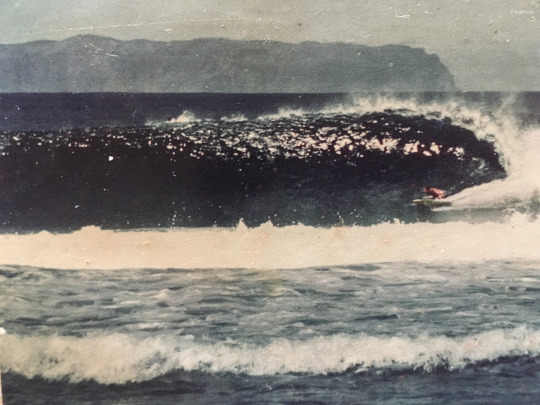
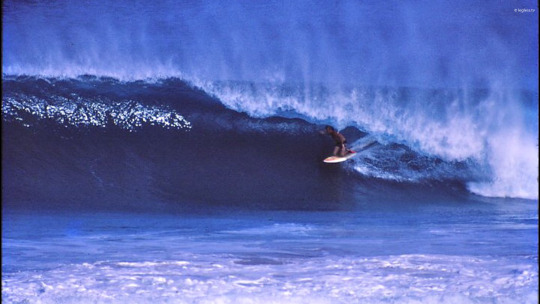


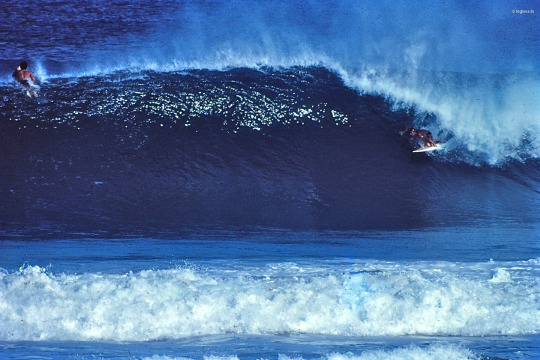
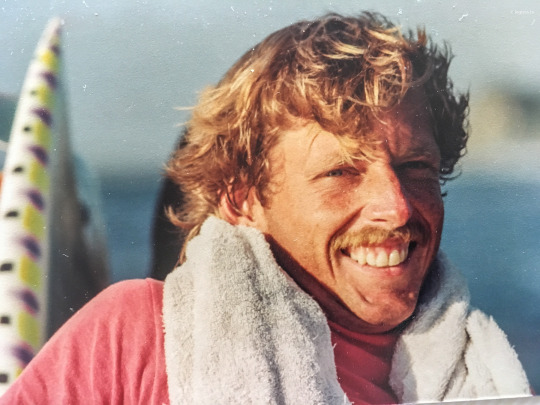
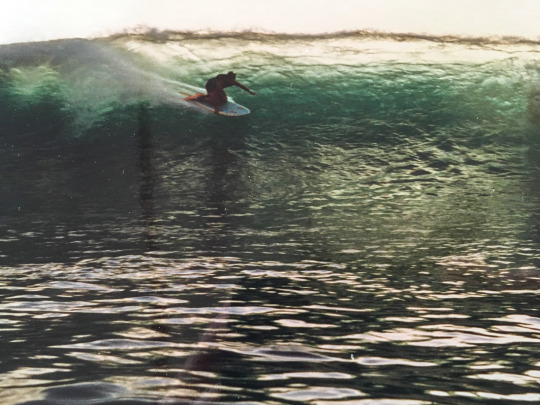
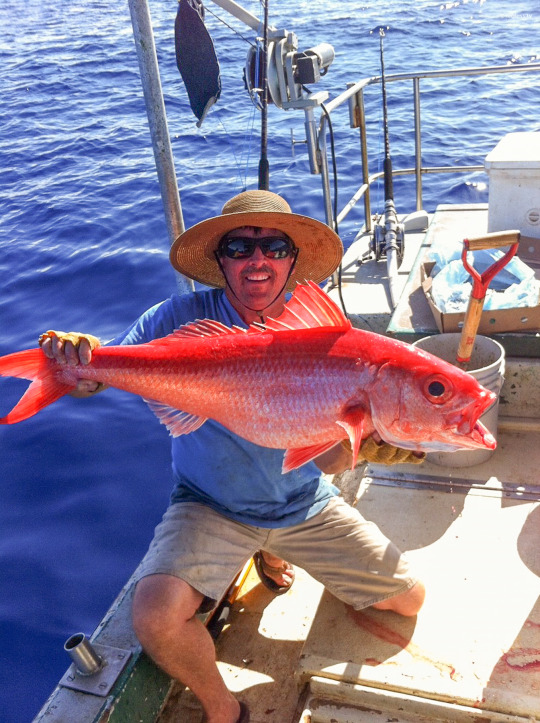
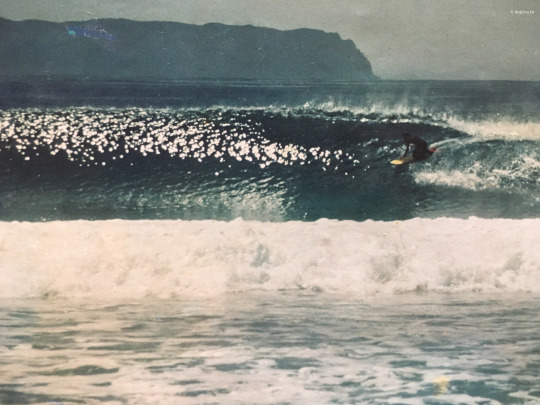
The Dream Run: Greg Holzman’s Island Life
Some questions. Who are you, really? Where do you live? How do you make a living? What turns you on? What frightens you? What do you want from life and what would you sacrifice to get it? Write your answers down on a piece of paper and then, next to each answer, write down why. Take your time. Think about it. You might discover some surprising things about yourself.
If you’re a kneeboarder, you’ll have been asked “the question” by someone who’s not. There may be any number of glib retorts tossed off over a shoulder with a laugh, but the question of what keeps each individual kneeboarder surfing in a manner generally seen as archaic, curious or just plain weird, will always have a real answer, one that reveals something about our individuality. Sometimes the answer’s so simple that it needs no explanation. Then again, sometimes the simplest things can be the hardest to grasp. At the most basic level, human motivation has to do with need: food, shelter, belonging. Once needs are met, desire takes over. We become driven by our strongest desires. those to which we ascribe the most importance, and hence the most value. The profile you’re about to read is an object lesson in this principle and how it can shape a life.
Lately we’ve been exchanging emails with Greg Holzman. If the name’s familiar it’s because he’s the subject of a few drool-provoking photos published here over the last year or more. We’ve known about him for a long time, primarily through shaper and Hawaiian legend Bud McCray, but Greg’s something of an enigma, staying out of sight and quietly doing his thing. A fisherman by trade, Greg’s thing involves finding the best, biggest and emptiest waves he can sensibly contemplate, and riding them with rare style and grace. Here at Legless.TV we reckon that qualifies Greg as a genuine underground hero, though we suspect he’d probably be reluctant to describe himself in such terms. We’re not about to enter the debate about the merits or otherwise of the whole concept of “underground”: our job is simply to record and present to the world what is. Greg’s based on Kauai, the outermost island of the Hawaiian chain. We started by asking Greg for a little biographical background. Oh yeah: that’s us in italics, everything else is Greg.
My father’s family moved here before WWII, to Honolulu, but my dad met my mom in California, USA. I lived in La Jolla a few years and saw the Lis fish crew kneeboarding Big Rock and was sure that was the thing to do. Everyone on stand-ups was eating shit there and it was like a gladiator arena. Then I saw Greenough films in a movie theater in 71/72 - with the barrel shots. My Dad got me a G&S twin-fin fish and I brought it back to Hawaii when we moved to Kailua on Oahu. I remember it sucked, but it got me there. I was a kook for three years, from 12 to 15. I never did surf Big Rock, which was the goal when I started. But then in 1974, Local Motion opened the first surf shop in Kailua, and I was one of the first kneeboarders in there. They had a few nice 5’4” fish twins and I had some Christmas money. I bought a nice Robbie Burns (owner of Local Motion) shaped kneeboard. I took that board to Maui, where I went to 10th grade high school. I got kicked out for putting too much priority on surfing. I was devastated. I went to the school in the summer and begged them to take me back, but they said I wasn’t college material, which was true. I just loved the outer island life in the 70’s.
Outer Island life in the mid-70s can be seen in surf films of the day: Fluid Drive, 5 Summer Stories, A sea For Yourself. If you were a kid watching those movies in a rented hall somewhere that wasn’t Hawaii, the images of hollow waves in clear, warm water, white sand with palms swaying gently in perpetual offshores was almost too much to bear. Greg was living it.
It all really started when I was 15. I surfed Maalaea September 1974 and May 1975 with all the guys like Jeff Hakman, Reno Abillera, Sammy Hawk, Owl Chapman. It was like I was in a movie. Just the best swells ever, photos in all the magazines - historical stuff. That was my first real tube riding. I was 15 and I was in these big windy tunnels, trying to figure it out. There was no going back to “normal” pre-surf life after that. Later on I was scared out of my head some days at Specklesville and Hookipa Lanes. I would duck dive and the wave would just suck me back over as I was so light, but my Duck Feet fins just saved me time after time. I learned to love it, not fear it. By 17 I was in public high school – surfing, cutting class on Kona winds, riding Pipe and a place called North Beach on Kaneohe Marine base. We would sneak in early mornings and avoid the Military Police.
Military Police? Really?
Yeah. I became a master of deception. I got to know the kids on base and would take on their identity. While other surfers were getting busted, I was heading back to my friend’s house where the Mom would be super happy their kid had a friend off base. These kids were not popular at school! It all worked out and I became the kid that came into school at recess or lunch with wet hair and sandy feet and everyone wanted to know how the surf was. That’s where I learned to enjoy surfing by myself. It was cool, and I knew I was a lucky kid who had broken the code. I remember more than once being woken in period 6 by my history teacher all worried I wasn’t getting enough sleep at night, when it was actually I was up before dawn, on my bike through the back of the military range with a flashlight … and then riding to school for my 25 cent taco lunch and 5th and 6th period. I’m not sure how I graduated but I did.
I became good friends with Buzzy Kerbox, as I was roommates with his girlfriend. We surfed the North Shore a lot through the winter of 78/79. He got me in the know with Pat Rawson, who shaped his boards. Pat made me a few boards and I surfed Pipeline a bunch with Buzzy. He was on a roll with big wins and it was an interesting time, but I knew it wasn’t going to last. The North Shore was getting very popular and my secret spot at Kaneohe Marine Base was now too risky to sneak on - I had turned 18 and could be arrested and thrown in jail. Something had to change. I got a newspaper, looking at outer island jobs, since I was thinking of going back to Maui. I saw a job for a cook on Kauai. I watched that ad change and the salary get better and then one day my friend and I were with our girlfriends and I just told him “I’m calling these guys up”. Our girlfriends thought we were kidding but the chefs were desperate. They said they would pay our way over to check it out. I was 19 and thought I’d just go for the ride. I ended up with a company truck and a condo and my first strike mission. Our girlfriends were just shocked! I told my mom after a month she would have to come to Kauai if she wanted to see me because I was staying for good. It was heaven - even the military base let us on, no sneaking - and the waves were epic. After a year I bought a Jeep and my life was as good as it gets. Everyone worked in the restaurants at night and surfed in the mornings. It was a big party. We all knew we were in the best place in the USA. Nobody wanted to expose it. Photos were not a thing, but a few came up from time to time and as the years have gone by, they’re now showing up.
Then Hurricane Iwa came in November 1982.
The last storm of the 1982 hurricane season, Iwa struck Kauai hard, with winds of up to 193 kmh, massive swells and storm surge. Hundreds were left homeless, schools were closed indefinitely and President Reagan declared the island a disaster area. Greg was living in a beach house and when the eye passed over, escaped to a friend’s house inland with just two boards and the clothes he was wearing.
Everything changed after that. Many surfers became construction workers and many got serious about life and money. The age of innocent fun was being tested. Restaurants were closed for half a year. I tried the construction stuff, but I couldn’t work in the day. I had always worked nights and surfed days. It just felt wrong. A friend had a boat and took me fishing. First time out, we caught so many fish. In the morning we brought them in, got a slip in the butcher shop and then we went to the cashier at the grocery store and she gave us money ... wow that was different! I was always giving her my money for food. I thought - this is something I can do on the ocean: work a few days and make as much as I normally do in two weeks ... I got to get me a boat! I learned everything I could from this guy, who was a tough old fisherman: it was all in my plan that I was going to get my own boat!
But things were tough and housing became an issue. I was homeless by 1983 but eventually I managed to find a house on the westside of Kauai. It was three bedrooms for $275 a month. So cheap! I got a roommate and life became pretty easy. I was fishing about 10 days a month and banking money while surfing the rest of the time. Life was cheap and the waves were good. I had decided I would get a boat and I was ready. My first boat was a disaster – a 50 ft wooden boat that had little chance of getting a slip in the harbor. I found a mooring I could lease in Nawilliwilli harbor and kept her there. March 1984, she sank trying to deal with a 24-day storm. I woke up to the Coast Guard saying my boat was on the rocks and I needed to get the fuel off before the tank ruptured and I was in real trouble. That was a lot of work, but lucky for me because that boat would have killed me if it hadn’t sunk. At $10,000 and a year of my dedication it was the school of hard knocks, but it made me learn what I needed to find and how much I was going to have to save to get it. It took me 5 years, but I finally bought a 26’ Radon hull from Santa Barbara Ca. - an all fiberglass trailerable boat I could leave at my house. I still have it. That boat has been my golden goose for 35 years. Although I’m presently not fishing a lot as I’m focused on surfing, I assume one day I will go again. It’s ready when I need it.
With the purchase of his own boat, Greg became able to finetune the way he structured fishing around surfing. The state of Hawaii officially recognises 137 separate islands, but there are many more, many so small they’re not marked on charts. On one of these, Greg had found good waves … and he began to surf them.
I wanted to surf and fish in areas of Hawaii few knew of, so I became a solo bottom fisherman. In Hawaii, that means mainly deep sea vertical long line fishing with targeted hooks in deep-water, anchoring in 400 to 1200 ft of water on deep drop offs and seamounts. I was good at this - surfing and this style of fishing help each other. I became familiar with every sea condition: I’ve been anchored and fished in water that was plain scary. Fishing certainly helped me understand the sea. Like all my endeavours, I took it to the limit. I became the best and it all came from my desire to surf an uncharted island, a place which I shared but never would photograph. Its Hawaiian name is Wai Uliuli or “blue blue water”. I lived for that and made my fishing an excuse to get to that place. It really only got good on high surf warnings, so it was not for the meek. I was often solo surfing or with a friend or single crew member. Mostly I surfed it alone, and it became a spiritual thing which made me comfortable in heavy water. This spot needs a specific swell direction to work well, and of course the right winds. It was always empty. One time the waves got so big I was forced to spend the night on the beach, digging a hole in the sand and using my board as a blanket. Luckily my crew was able to pull anchor and re-set in deeper water. The waves just rose so quick I couldn’t get back out to the boat. After that I was determined to bury water and supplies on the beach to make sure that if it happened again, I was going to be OK. I was sure to be prepared next time. I promised never to take photos or bring cameras and to this day, few exist from my trips. I was offered big money to get the shots, but I never wanted anything to do with exploiting a place I considered - and still do - sacred and holy. Many friends have been, but never a camera. Of course, this was all before iPhones.
To Greg, the years from 1983 to 1992 were golden. Great boards, great waves, making a good living from the ocean, travel: he was living a dream life. Bud McCray was a big part of it.
It was 1983 when I met Buddy McCray. My younger brother Pat was also a kneeboarder, following me into it. Pat lived on Oahu and he met Buddy in the surf. Buddy missed nothing and was quick to come over to Kauai that summer, and he brought a board for me. He recognized that I was willing to test anything, so he sent boards over and I would just give him feedback. His boards got better and better. Sometimes I didn’t like them, but he would tell me to keep trying and many times they did get better, but for me, I kept getting more into the basic no wing, no channel, short fish. I tried pins and squaretails, but it was the basic 5’6” flat bottom Vee that did it for me. In the early ‘80’s surfers were having issues with large waves. I was able to sit inside of them and often catch the sets, because they were constantly under-gunned, but my fins and low center of gravity allowed me in easy. Buddy had me sold pretty quickly on the four-fin set up and by ‘84 things were full tilt. Buddy came over to Kauai regularly the next few years and brought various kneeboarders with him, including Albert Whiteman and an 18-year-old Simon Farrer. Buddy had great timing and we just surfed so much! Every time he came the waves were good. In 1987 he decided to take Lee Pattison, Mike McGuire and myself to G-land. Buddy was well known in every corner of the world by then, but it was my first trip. Bobby Radiasa had been to Hawaii and stayed with Buddy, so we were treated very well. It was a special time to be there, as many know - that first trip was so eye-opening. Before that, I didn’t feel I needed to go anywhere, but after, I knew the best waves in the world were not in Hawaii: for consistent offshore long-period single swell events, it was all happening in Indonesia. Once again Buddy had sent me to the happiest place on earth, with three new boards and a surf camp owner who made sure we were taken care of. Anyone who was there will agree it was one of the best times in the history of surfing.
Greg went back to G-land again for 6 weeks the following year. On his way home he stopped in at the Sari Club in Kuta, where he met Mary, a sweet Californian girl who also surfed – well, of course. Her trip home included a stopover in Hawaii, where Greg showed her around. They had a great time surfing big waves together. Thus began a union that eventually brought them three children. In 1989 Greg travelled to Jeffreys Bay with Buddy McCray, and in 1991 he went again, and found more than just waves.
The waves reminded me of home - cold offshores in midwinter, storms hammering the coast and filtering down to a sweeping right: I loved South Africa. I found a plant group - Cycads - that fascinated me. I was lucky enough to be brought in by some great experts in the Cape, who also liked seashells, which I was collecting in Hawaii. With a bit of horse trading I was taught about these plants, taken into habitat a few years later as a research assistant for the National Botanical Garden and shown around the country by Nature Conservation officers. This began a 30-year love affair and the beginnings of my own Cycad nursery which today allows me to fund my surfing obsession. This wasn’t always the plan, but I also played a huge role in the study of many newly discovered Cycad species in Panama. I helped in collecting and working to help people better understand this important ancient plant family, the oldest continual seed-bearing plants on earth. Over 200 million years! Cycads live for hundreds of years and are extremely valuable. They’re threatened with extinction in South Africa from poaching. They are living art and I wanted to help by competing against the black market by growing Cycads from seeds I produced over 20 years: they grow 10 times faster in Hawaii. It may be the romantic idea of a 30-year-old dreamer, but I achieved a lot.
Greg’s wife, Mary, had formerly been a competitive swimmer, so it was natural for their three kids to follow suit, at least for a while. Their eldest, Matthew, retained enough competitive drive from all those junior swim meets to become a pro body boarder, but there’s a fair bit of the old man in him.
Matt loves to kneeboard when the surf isn’t crazy. He was charging huge Pipe at 17 and got waves in contests that made me live another aspect of surfing - that’s vicariously through your kids’ performance. Sean was less competitive, not wanting to have to live in his brother’s shadow, so he became an amazing diver who took on my love of the hunt. From boars to deep-dive spear fishing, he was leading his peer group, so they both had few problems fitting into this racially diverse island life.
Greg’s daughter is now 15 and can surf, but her Dad reckons she’s become a bit of a landlubber and isn’t getting out in the water. He’s hoping that will change. After all, Greg had a period away from surfing himself not so long ago. He and Mary divorced in 2012, He had been feeling pretty jaded with the surf scene - jet skis and egos and social media, and by the 2013-14 season, Greg stopped surfing altogether - for the first time in his life.
I quit cold turkey, Greg Noll style. I tried to play tennis for 2013/14 and just concentrated on my kids. Finally, I realized I hated competing. Tennis is usually a very competitive game, and I love watching and coaching competition, but after two seasons it was clear that tennis didn’t cut it in the adrenalin area. Times were changing in Kauai surfing again - times are always changing! By 2015, life was expensive and hard for young families, which got a lot of guys in that 30-something age having to work more. My life was getting cheaper and the kids didn’t need me as much, so I began to surf full time and fish less. The winter of 2015-16 was an amazing season which ended with a bang - double late West swells in April. Buddy had made me a board a year earlier and it worked amazing. The foam was different, but the board’s flex made it magic. I could feel that flex and the thinner board flew in 10ft plus Hawaiian power. I never looked back. When those West swells came in, I was surfing so well I just didn’t want it to end. Buddy made me two new boards and by May I was dying to try them out, so I headed to Kandui and quickly realized that this surf traveling was the greatest feeling of all. With the high-tech forecasts and Facebook etc ... strike missions could become a lifestyle.
Greg has seen a lot change in surfing over the span of his life. From starting out at a time when the introduction of legropes caused major schisms in surfing circles, he has witnessed the birth of professional surfing, the transformation of backyard businesses into international brands, the growth of surf tourism, the age of the sponsored free-surfer and the expansion of surfing into its various power-assisted and highly specialised genres and sub-genres. Just as the humble legrope unexpectedly brought about a fundamental shift in how and where we surf, new pressures and new technology have expanded the scope of surfing and changed how and where we surf yet again. We talked a little about the way things are now.
The IT revolution, with the advent of smartphones, social media and instant global communication, has been felt world-wide - Kauai is no exception – and short of the collapse of western civilization, there’s no going back to a time before. The local Kauai policy of no photos, no publicity may have been enforceable in the 70s and 80s, but in the 21st century, exposure is inevitable, and it seems that’s especially so if it’s unwanted.
Yes. The trouble today is that nothing happens without photographic evidence and pictures tell a thousand words. I’m less affected by this on the road, but I tend to be pretty quiet about my backyard. Though it affects me less now. I’m finding that the standard surfers’ taste in waves and priorities can rapidly change, especially if a few friends find it the place to be. Every year is different. Sandbars, swell direction, winds – they all seem to run in groups that will send surfers from one place to another, chasing the in-vogue spots of the moment.
On Kauai we have serious issues with the use of jet skis during High Surf events. It can be a real issue. Because of our round island, the swells can wrap which - means a lot of the jet-skis end up tow surfing the same waves 50 paddle surfers are riding. An example is a place I surfed for 25 years without a ski around. It’s much like Kirra, with a strong sweep, long walks up the point and long paddles. Now I can’t surf there. It’s just too much a scene. I’ve had waves that I was on and in the barrel and 100 yards down the beach a jet-ski goes and U-turns to swing a guy in. Well, I have ridden right up to the wall of water from their tow-in turn. Hitting water that fast inside big barrels leads to bashings on my back on the bottom. Complete floggings. I have never surfed there again with skis out. Don’t get me wrong. I love tow-ins in the right big-wave situations. I have towed in on days surfers are not out on outer reefs. That’s a different animal, but jet-skis and paddle surfing are not compatible. It’s a complete change in vibe and the tow guys never get less greedy, it’s always more, more, more. I’ve spent a long time campaigning for issues in my surfing on Kauai. From military beach access after 9-11 to Anti-Federal Marine Sanctuary expansions to advocating for jet-ski enforcement in surf areas. The threats continue to grow.
Part two coming soon.
Words: Rob Harwood (legless.tv wordsmith)
Images supplied by Greg
#greg holzman#buddy mccray#blast kneeboards#legless.tv#leglesstv#Rob Harwood#kneeboard surfing#kneeboarding#kneeboardsurfing#kneeboard Hawaii
1 note
·
View note
Link
One of the most important books of the last one hundred years is available for free on Kobo.com.
"They Thought They Were Free" is the result of an American Jewish journalist who, a decade after the end of WWII, befriended and interviewed ten everyday German citizens who had been members of the Nazi party, both repentant and unrepentant, to explore how ostensibly normal, everyday people were so easily seduced into supporting unspeakable evil, or at the very least ignoring it until it was too late. And of course, it happened much the same way it's happening now in America. Hopefully understanding how it happened there and then can help us fight it here and now.
AN EXCERPT:
But Then It Was Too Late
"What no one seemed to notice," said a colleague of mine, a philologist, "was the ever widening gap, after 1933, between the government and the people. Just think how very wide this gap was to begin with, here in Germany. And it became always wider. You know, it doesn’t make people close to their government to be told that this is a people’s government, a true democracy, or to be enrolled in civilian defense, or even to vote. All this has little, really nothing, to do with knowing one is governing.
"What happened here was the gradual habituation of the people, little by little, to being governed by surprise; to receiving decisions deliberated in secret; to believing that the situation was so complicated that the government had to act on information which the people could not understand, or so dangerous that, even if the people could not understand it, it could not be released because of national security. And their sense of identification with Hitler, their trust in him, made it easier to widen this gap and reassured those who would otherwise have worried about it.
"This separation of government from people, this widening of the gap, took place so gradually and so insensibly, each step disguised (perhaps not even intentionally) as a temporary emergency measure or associated with true patriotic allegiance or with real social purposes. And all the crises and reforms (real reforms, too) so occupied the people that they did not see the slow motion underneath, of the whole process of government growing remoter and remoter.
"You will understand me when I say that my Middle High German was my life. It was all I cared about. I was a scholar, a specialist. Then, suddenly, I was plunged into all the new activity, as the university was drawn into the new situation; meetings, conferences, interviews, ceremonies, and, above all, papers to be filled out, reports, bibliographies, lists, questionnaires. And on top of that were the demands in the community, the things in which one had to, was ‘expected to’ participate that had not been there or had not been important before. It was all rigmarole, of course, but it consumed all one’s energies, coming on top of the work one really wanted to do. You can see how easy it was, then, not to think about fundamental things. One had no time."
"Those," I said, "are the words of my friend the baker. ‘One had no time to think. There was so much going on.’"
"Your friend the baker was right," said my colleague. "The dictatorship, and the whole process of its coming into being, was above all diverting. It provided an excuse not to think for people who did not want to think anyway. I do not speak of your ‘little men,’ your baker and so on; I speak of my colleagues and myself, learned men, mind you. Most of us did not want to think about fundamental things and never had. There was no need to. Nazism gave us some dreadful, fundamental things to think about—we were decent people—and kept us so busy with continuous changes and ‘crises’ and so fascinated, yes, fascinated, by the machinations of the ‘national enemies,’ without and within, that we had no time to think about these dreadful things that were growing, little by little, all around us. Unconsciously, I suppose, we were grateful. Who wants to think?
"To live in this process is absolutely not to be able to notice it—please try to believe me—unless one has a much greater degree of political awareness, acuity, than most of us had ever had occasion to develop. Each step was so small, so inconsequential, so well explained or, on occasion, ‘regretted,’ that, unless one were detached from the whole process from the beginning, unless one understood what the whole thing was in principle, what all these ‘little measures’ that no ‘patriotic German’ could resent must some day lead to, one no more saw it developing from day to day than a farmer in his field sees the corn growing. One day it is over his head.
"How is this to be avoided, among ordinary men, even highly educated ordinary men? Frankly, I do not know. I do not see, even now. Many, many times since it all happened I have pondered that pair of great maxims, Principiis obsta and Finem respice—‘Resist the beginnings’ and ‘Consider the end.’ But one must foresee the end in order to resist, or even see, the beginnings. One must foresee the end clearly and certainly and how is this to be done, by ordinary men or even by extraordinary men? Things might have. And everyone counts on that might.
"Your ‘little men,’ your Nazi friends, were not against National Socialism in principle. Men like me, who were, are the greater offenders, not because we knew better (that would be too much to say) but because we sensed better. Pastor Niemöller spoke for the thousands and thousands of men like me when he spoke (too modestly of himself) and said that, when the Nazis attacked the Communists, he was a little uneasy, but, after all, he was not a Communist, and so he did nothing; and then they attacked the Socialists, and he was a little uneasier, but, still, he was not a Socialist, and he did nothing; and then the schools, the press, the Jews, and so on, and he was always uneasier, but still he did nothing. And then they attacked the Church, and he was a Churchman, and he did something—but then it was too late."
"Yes," I said.
"You see," my colleague went on, "one doesn’t see exactly where or how to move. Believe me, this is true. Each act, each occasion, is worse than the last, but only a little worse. You wait for the next and the next. You wait for one great shocking occasion, thinking that others, when such a shock comes, will join with you in resisting somehow. You don’t want to act, or even talk, alone; you don’t want to ‘go out of your way to make trouble.’ Why not?—Well, you are not in the habit of doing it. And it is not just fear, fear of standing alone, that restrains you; it is also genuine uncertainty.
"Uncertainty is a very important factor, and, instead of decreasing as time goes on, it grows. Outside, in the streets, in the general community, ‘everyone’ is happy. One hears no protest, and certainly sees none. You know, in France or Italy there would be slogans against the government painted on walls and fences; in Germany, outside the great cities, perhaps, there is not even this. In the university community, in your own community, you speak privately to your colleagues, some of whom certainly feel as you do; but what do they say? They say, ‘It’s not so bad’ or ‘You’re seeing things’ or ‘You’re an alarmist.’
"And you are an alarmist. You are saying that this must lead to this, and you can’t prove it. These are the beginnings, yes; but how do you know for sure when you don’t know the end, and how do you know, or even surmise, the end? On the one hand, your enemies, the law, the regime, the Party, intimidate you. On the other, your colleagues pooh-pooh you as pessimistic or even neurotic. You are left with your close friends, who are, naturally, people who have always thought as you have.
"But your friends are fewer now. Some have drifted off somewhere or submerged themselves in their work. You no longer see as many as you did at meetings or gatherings. Informal groups become smaller; attendance drops off in little organizations, and the organizations themselves wither. Now, in small gatherings of your oldest friends, you feel that you are talking to yourselves, that you are isolated from the reality of things. This weakens your confidence still further and serves as a further deterrent to—to what? It is clearer all the time that, if you are going to do anything, you must make an occasion to do it, and then you are obviously a troublemaker. So you wait, and you wait.
"But the one great shocking occasion, when tens or hundreds or thousands will join with you, never comes. That’s the difficulty. If the last and worst act of the whole regime had come immediately after the first and smallest, thousands, yes, millions would have been sufficiently shocked—if, let us say, the gassing of the Jews in ’43 had come immediately after the ‘German Firm’ stickers on the windows of non-Jewish shops in ’33. But of course this isn’t the way it happens. In between come all the hundreds of little steps, some of them imperceptible, each of them preparing you not to be shocked by the next. Step C is not so much worse than Step B, and, if you did not make a stand at Step B, why should you at Step C? And so on to Step D.
"And one day, too late, your principles, if you were ever sensible of them, all rush in upon you. The burden of self-deception has grown too heavy, and some minor incident, in my case my little boy, hardly more than a baby, saying ‘Jewish swine,’ collapses it all at once, and you see that everything, everything, has changed and changed completely under your nose. The world you live in—your nation, your people—is not the world you were born in at all. The forms are all there, all untouched, all reassuring, the houses, the shops, the jobs, the mealtimes, the visits, the concerts, the cinema, the holidays. But the spirit, which you never noticed because you made the lifelong mistake of identifying it with the forms, is changed. Now you live in a world of hate and fear, and the people who hate and fear do not even know it themselves; when everyone is transformed, no one is transformed. Now you live in a system which rules without responsibility even to God. The system itself could not have intended this in the beginning, but in order to sustain itself it was compelled to go all the way.
"You have gone almost all the way yourself. Life is a continuing process, a flow, not a succession of acts and events at all. It has flowed to a new level, carrying you with it, without any effort on your part. On this new level you live, you have been living more comfortably every day, with new morals, new principles. You have accepted things you would not have accepted five years ago, a year ago, things that your father, even in Germany, could not have imagined.
"Suddenly it all comes down, all at once. You see what you are, what you have done, or, more accurately, what you haven’t done (for that was all that was required of most of us: that we do nothing). You remember those early meetings of your department in the university when, if one had stood, others would have stood, perhaps, but no one stood. A small matter, a matter of hiring this man or that, and you hired this one rather than that. You remember everything now, and your heart breaks. Too late. You are compromised beyond repair.
"What then? You must then shoot yourself. A few did. Or ‘adjust’ your principles. Many tried, and some, I suppose, succeeded; not I, however. Or learn to live the rest of your life with your shame. This last is the nearest there is, under the circumstances, to heroism: shame. Many Germans became this poor kind of hero, many more, I think, than the world knows or cares to know."
I said nothing. I thought of nothing to say.
"I can tell you," my colleague went on, "of a man in Leipzig, a judge. He was not a Nazi, except nominally, but he certainly wasn’t an anti-Nazi. He was just—a judge. In ’42 or ’43, early ’43, I think it was, a Jew was tried before him in a case involving, but only incidentally, relations with an ‘Aryan’ woman. This was ‘race injury,’ something the Party was especially anxious to punish. In the case at bar, however, the judge had the power to convict the man of a ‘nonracial’ offense and send him to an ordinary prison for a very long term, thus saving him from Party ‘processing’ which would have meant concentration camp or, more probably, deportation and death. But the man was innocent of the ‘nonracial’ charge, in the judge’s opinion, and so, as an honorable judge, he acquitted him. Of course, the Party seized the Jew as soon as he left the courtroom."
"And the judge?"
"Yes, the judge. He could not get the case off his conscience—a case, mind you, in which he had acquitted an innocent man. He thought that he should have convicted him and saved him from the Party, but how could he have convicted an innocent man? The thing preyed on him more and more, and he had to talk about it, first to his family, then to his friends, and then to acquaintances. (That’s how I heard about it.) After the ’44 Putsch they arrested him. After that, I don’t know."
I said nothing.
"Once the war began," my colleague continued, "resistance, protest, criticism, complaint, all carried with them a multiplied likelihood of the greatest punishment. Mere lack of enthusiasm, or failure to show it in public, was ‘defeatism.’ You assumed that there were lists of those who would be ‘dealt with’ later, after the victory. Goebbels was very clever here, too. He continually promised a ‘victory orgy’ to ‘take care of’ those who thought that their ‘treasonable attitude’ had escaped notice. And he meant it; that was not just propaganda. And that was enough to put an end to all uncertainty.
"Once the war began, the government could do anything ‘necessary’ to win it; so it was with the ‘final solution of the Jewish problem,’ which the Nazis always talked about but never dared undertake, not even the Nazis, until war and its ‘necessities’ gave them the knowledge that they could get away with it. The people abroad who thought that war against Hitler would help the Jews were wrong. And the people in Germany who, once the war had begun, still thought of complaining, protesting, resisting, were betting on Germany’s losing the war. It was a long bet. Not many made it."
287 notes
·
View notes